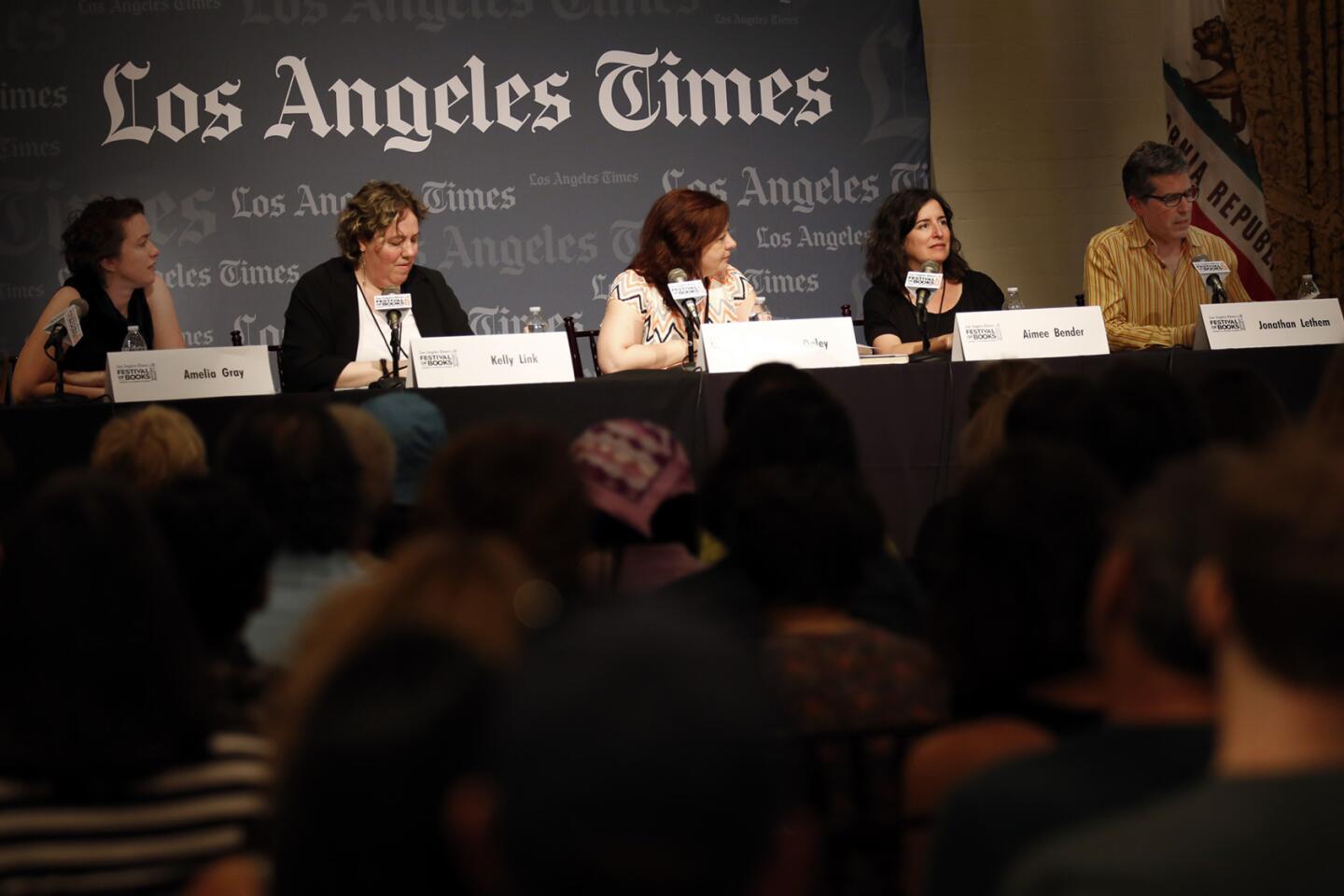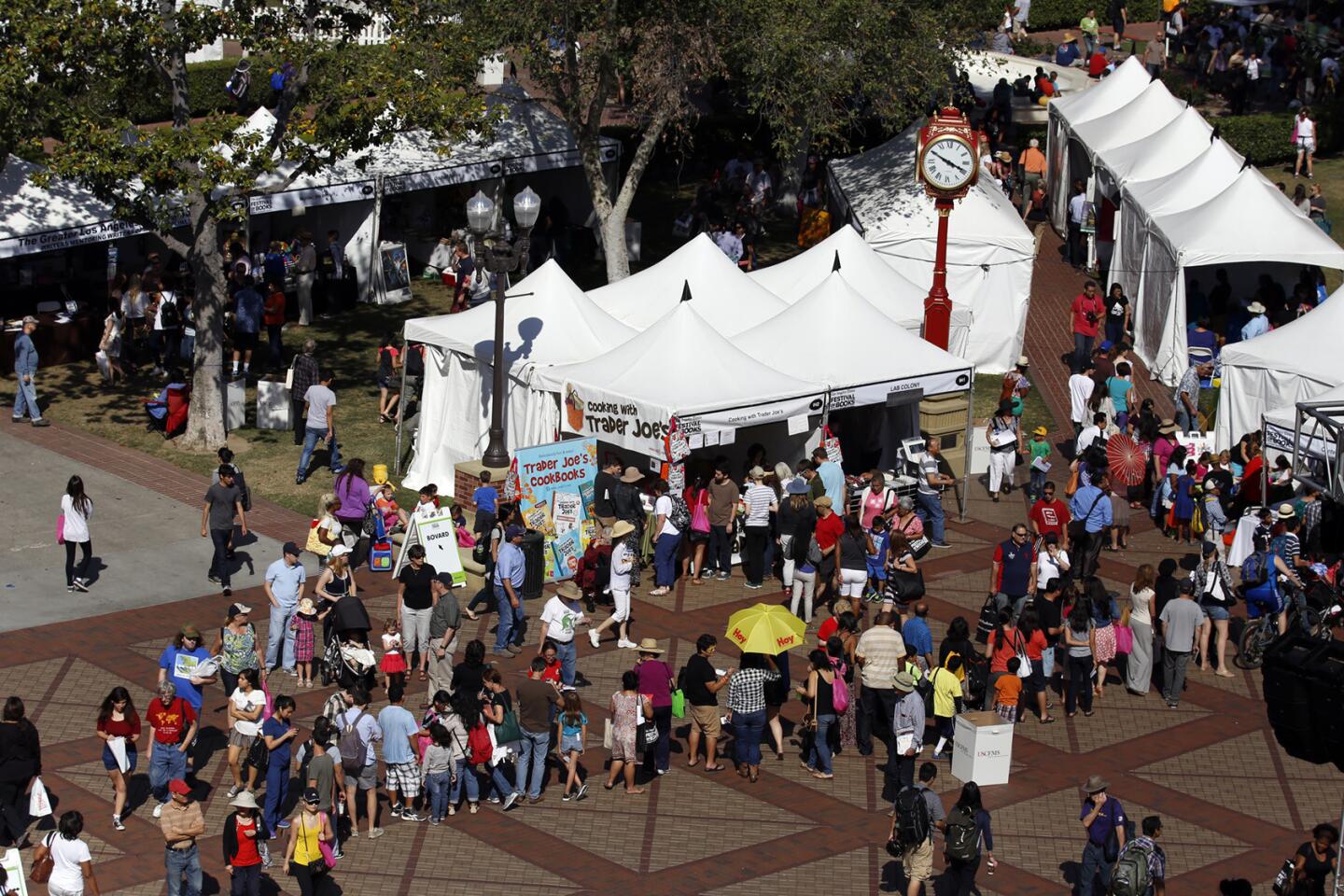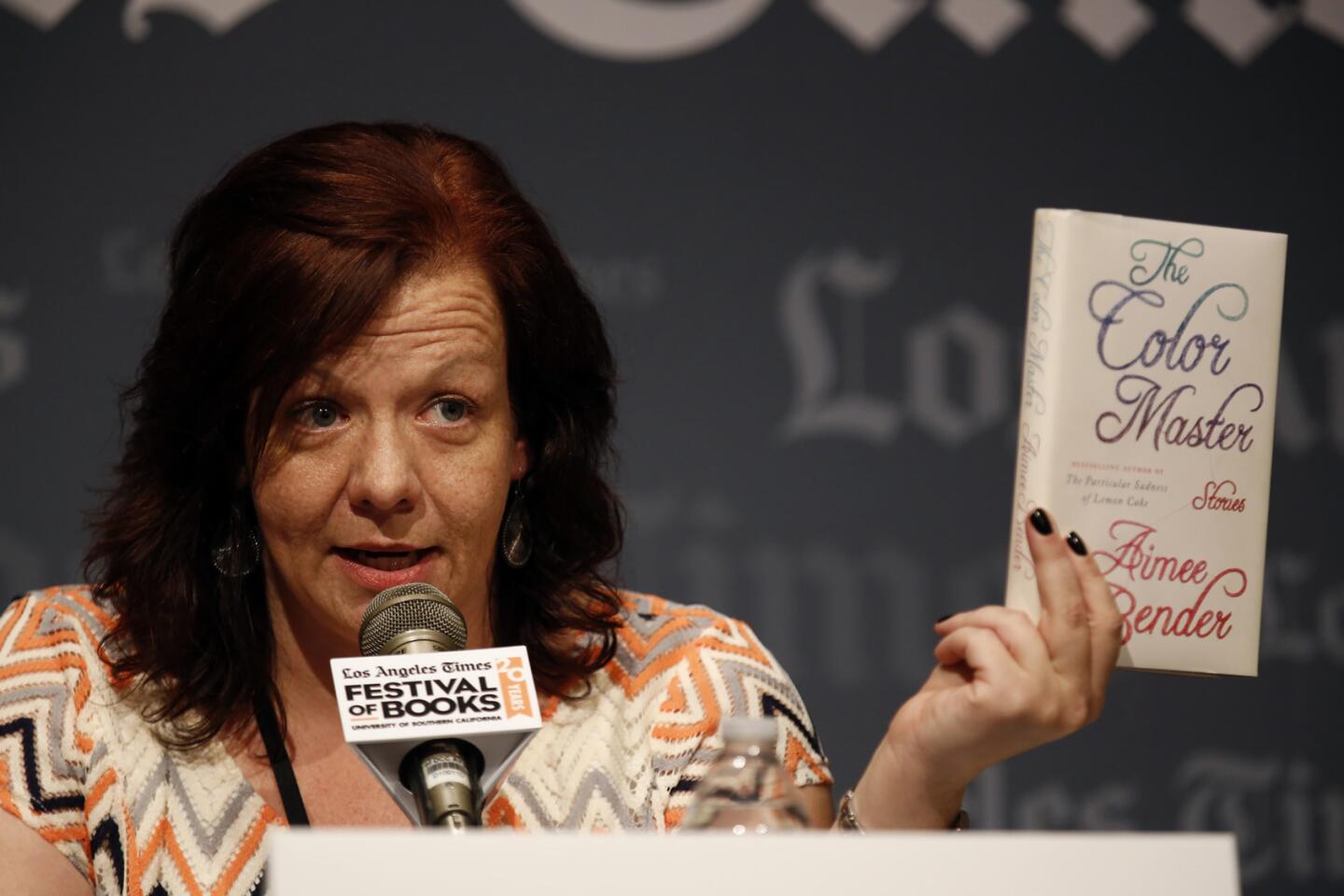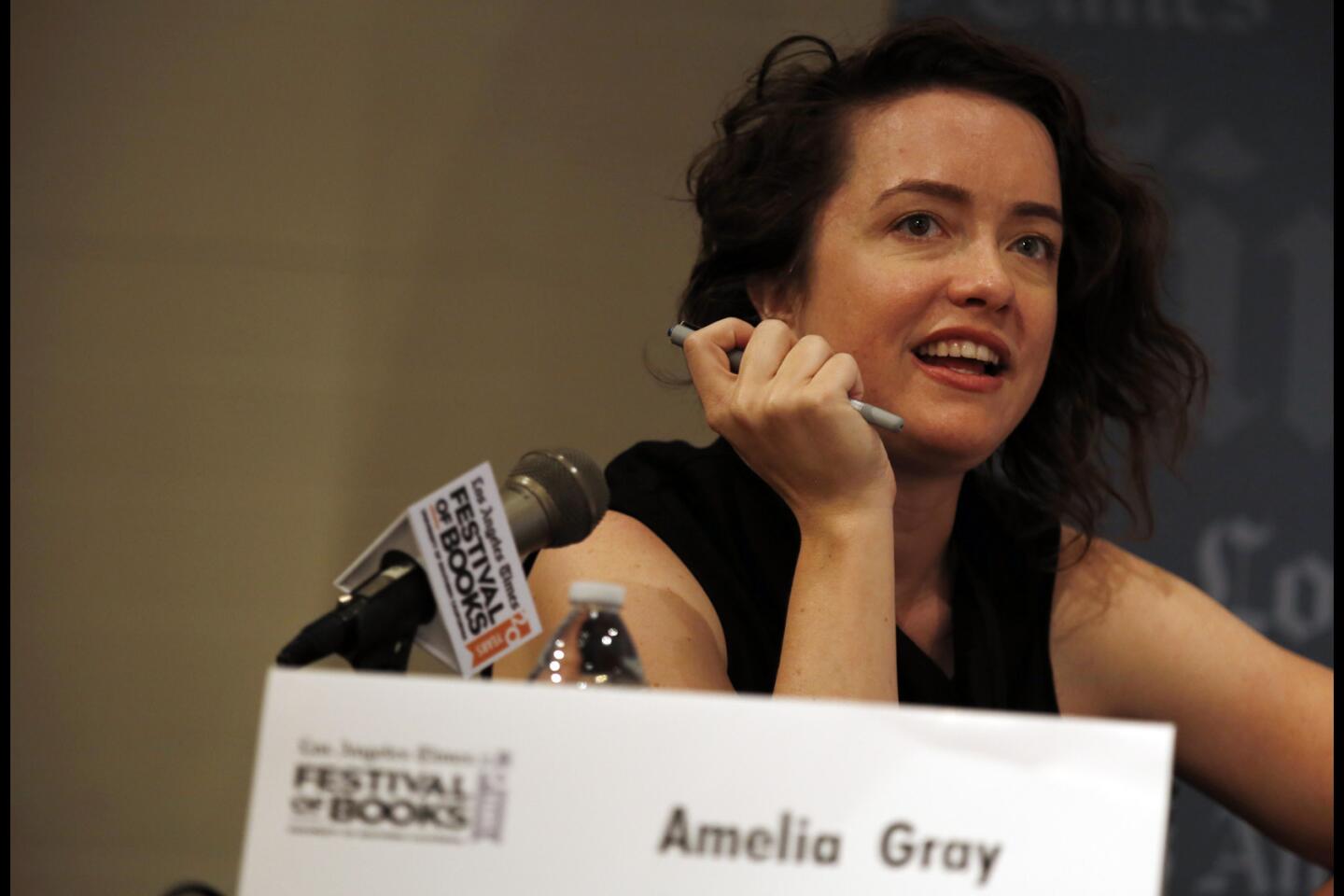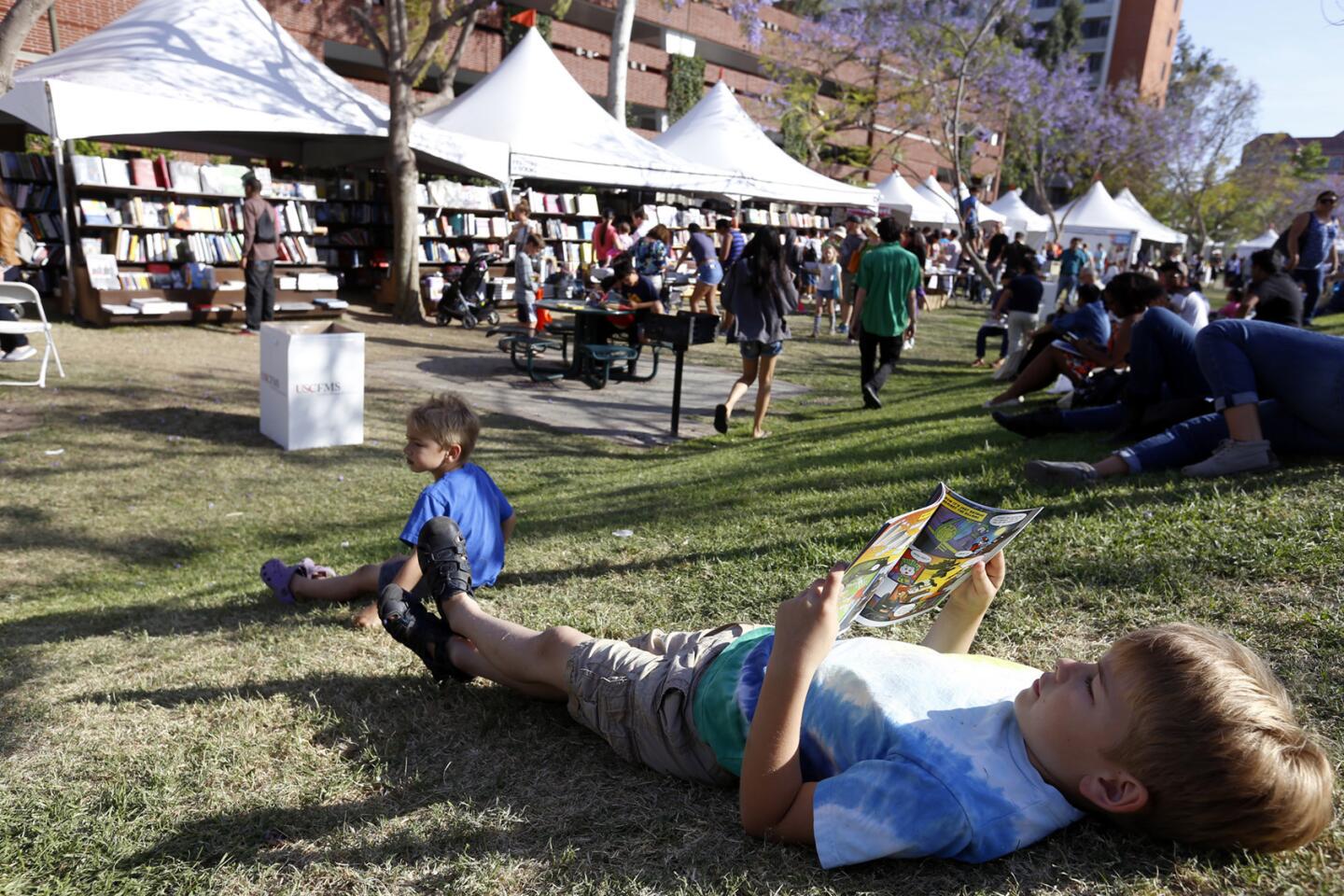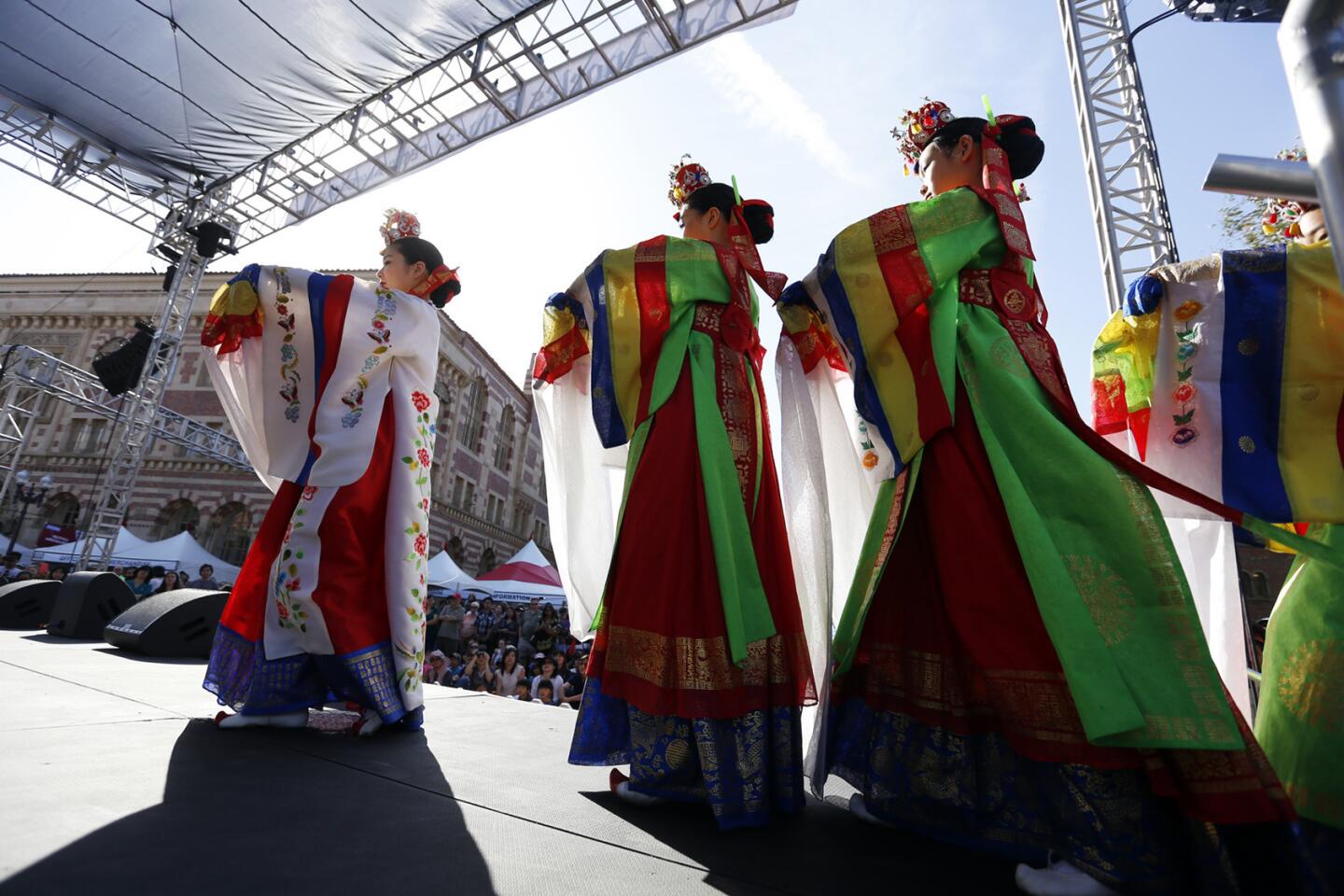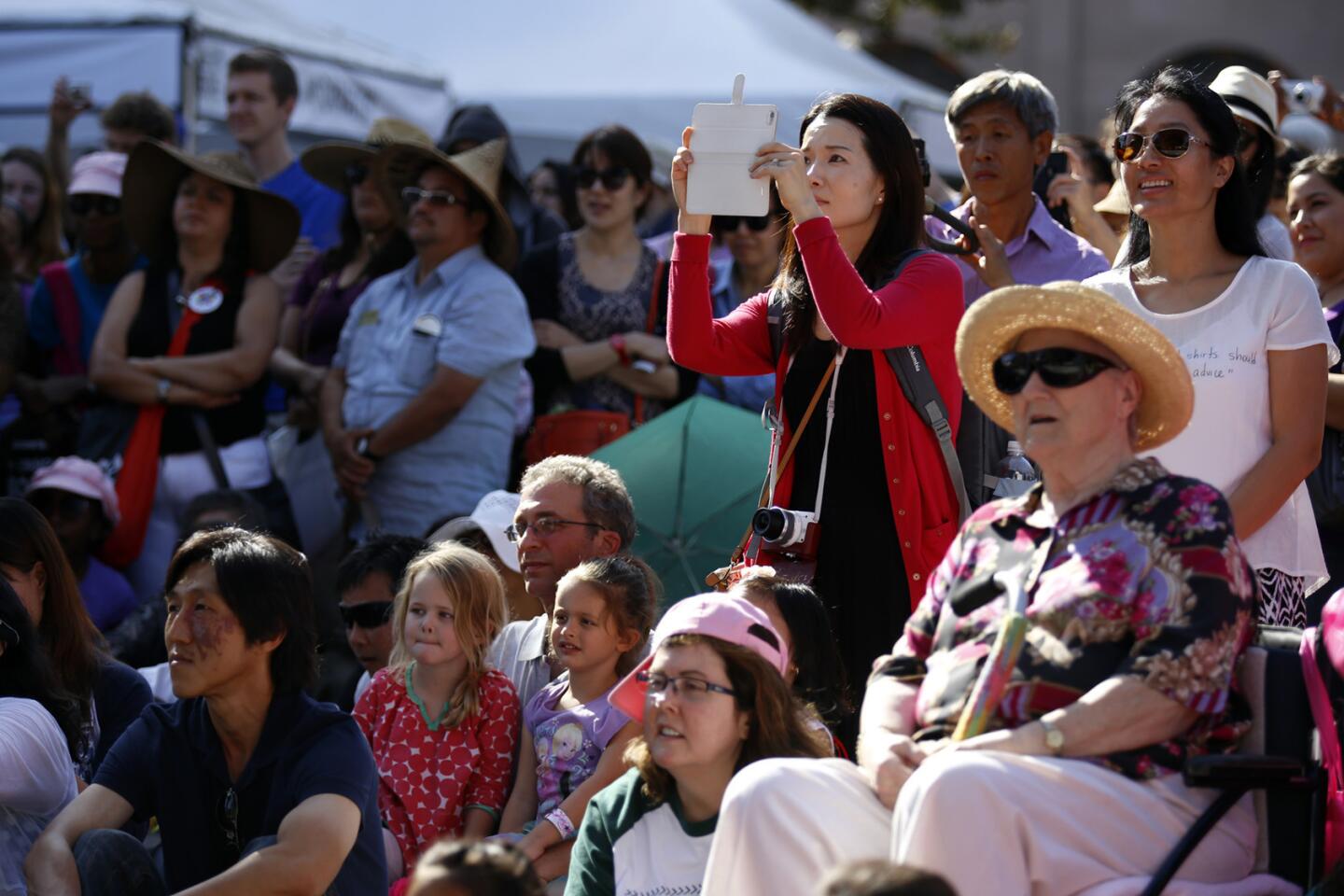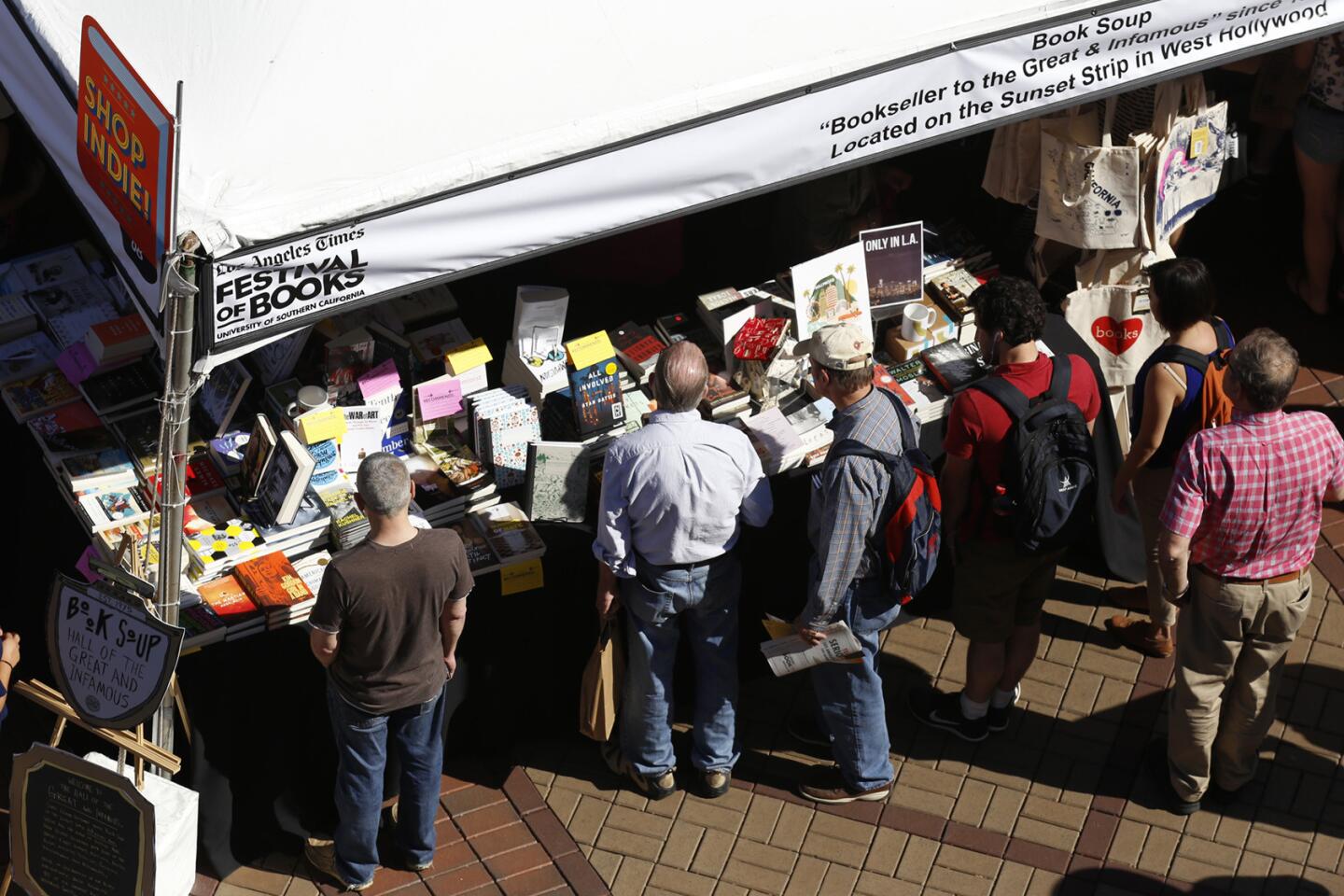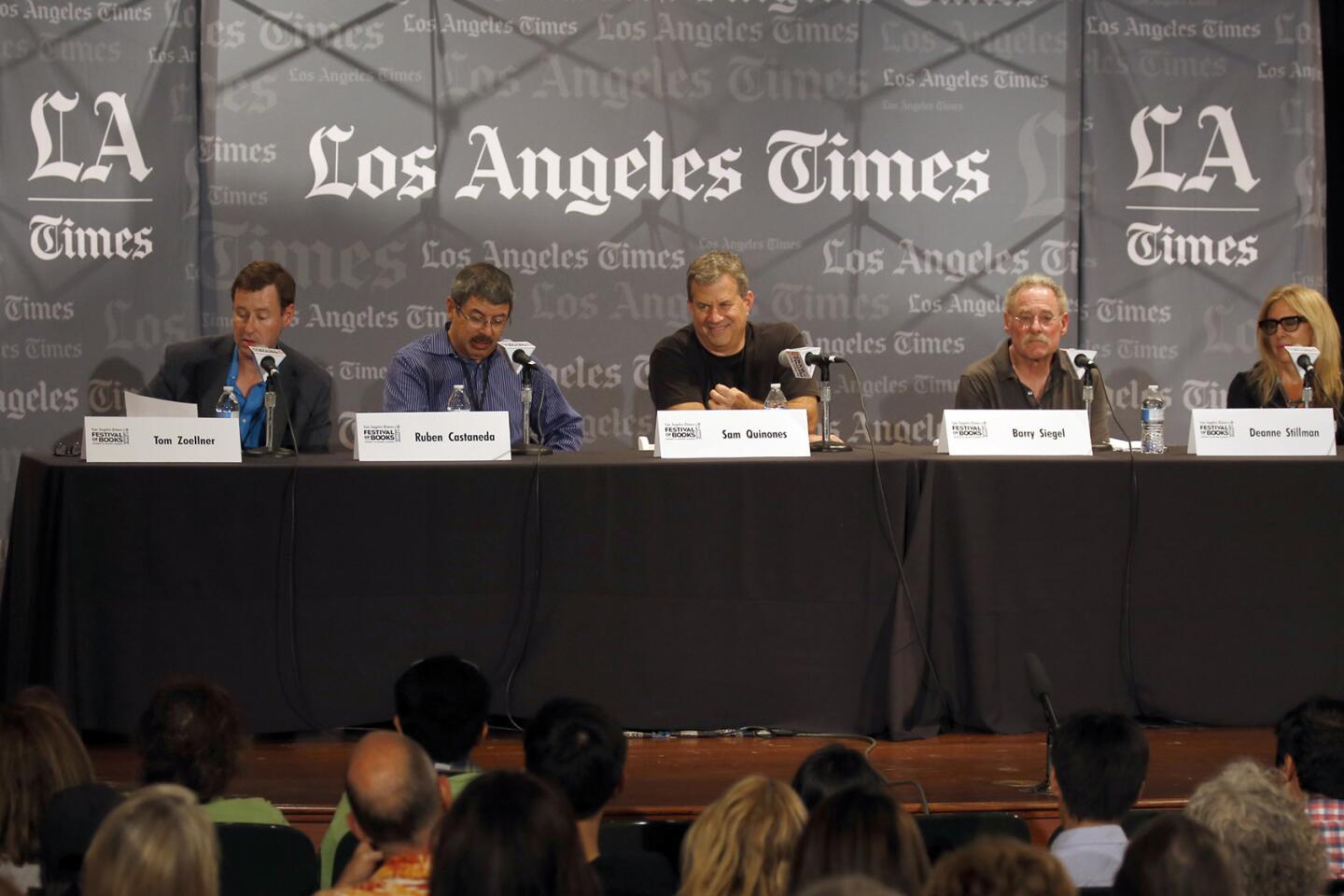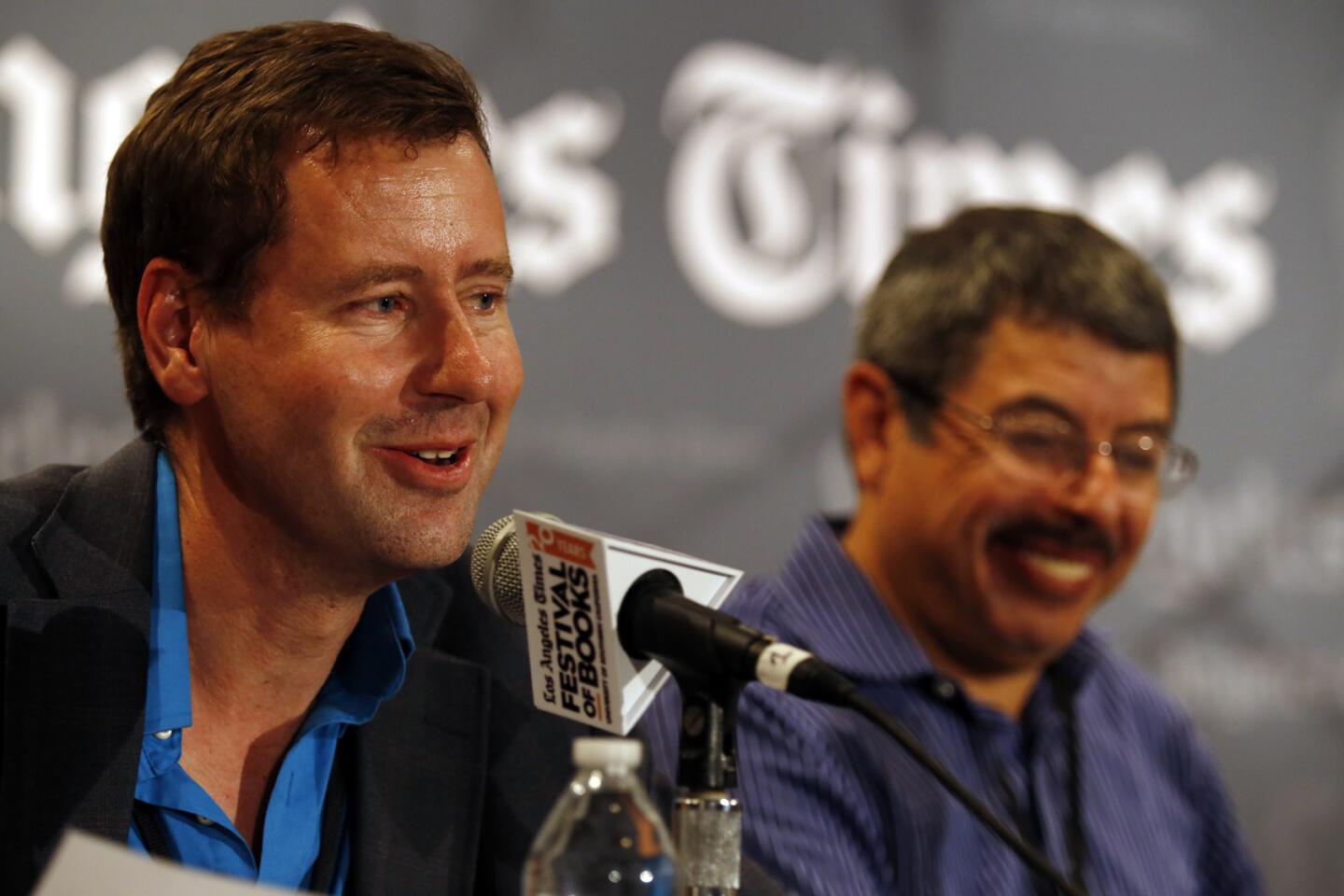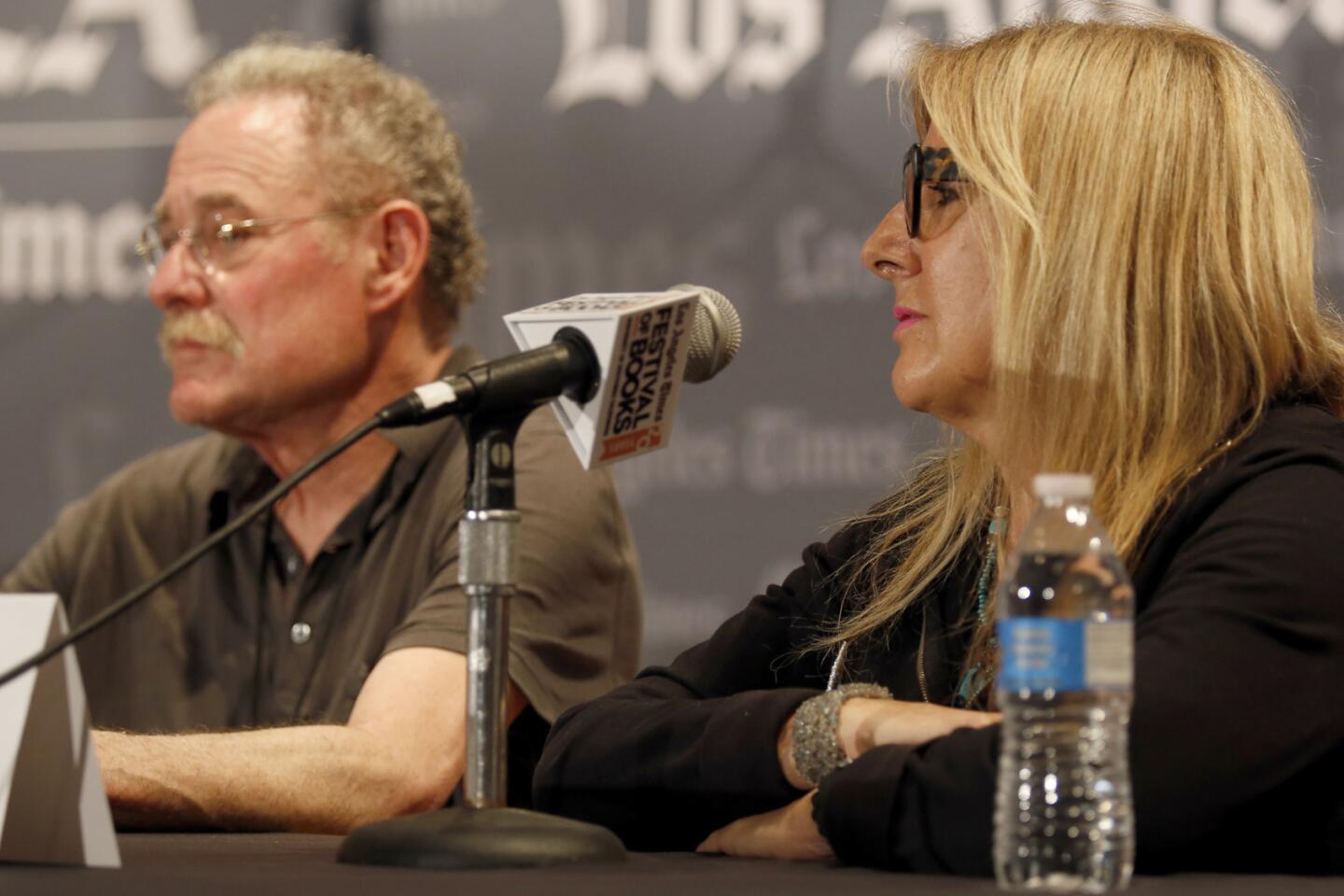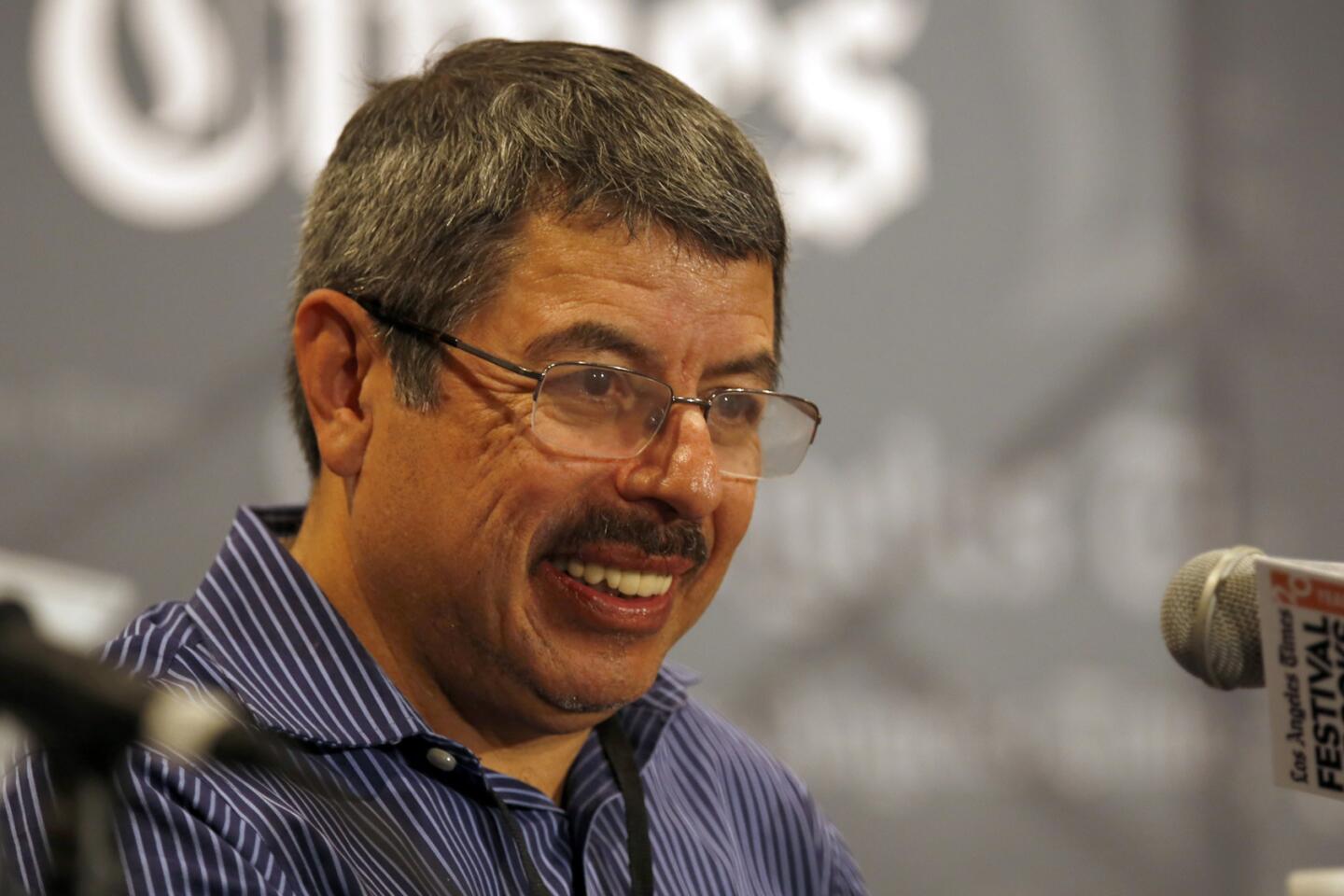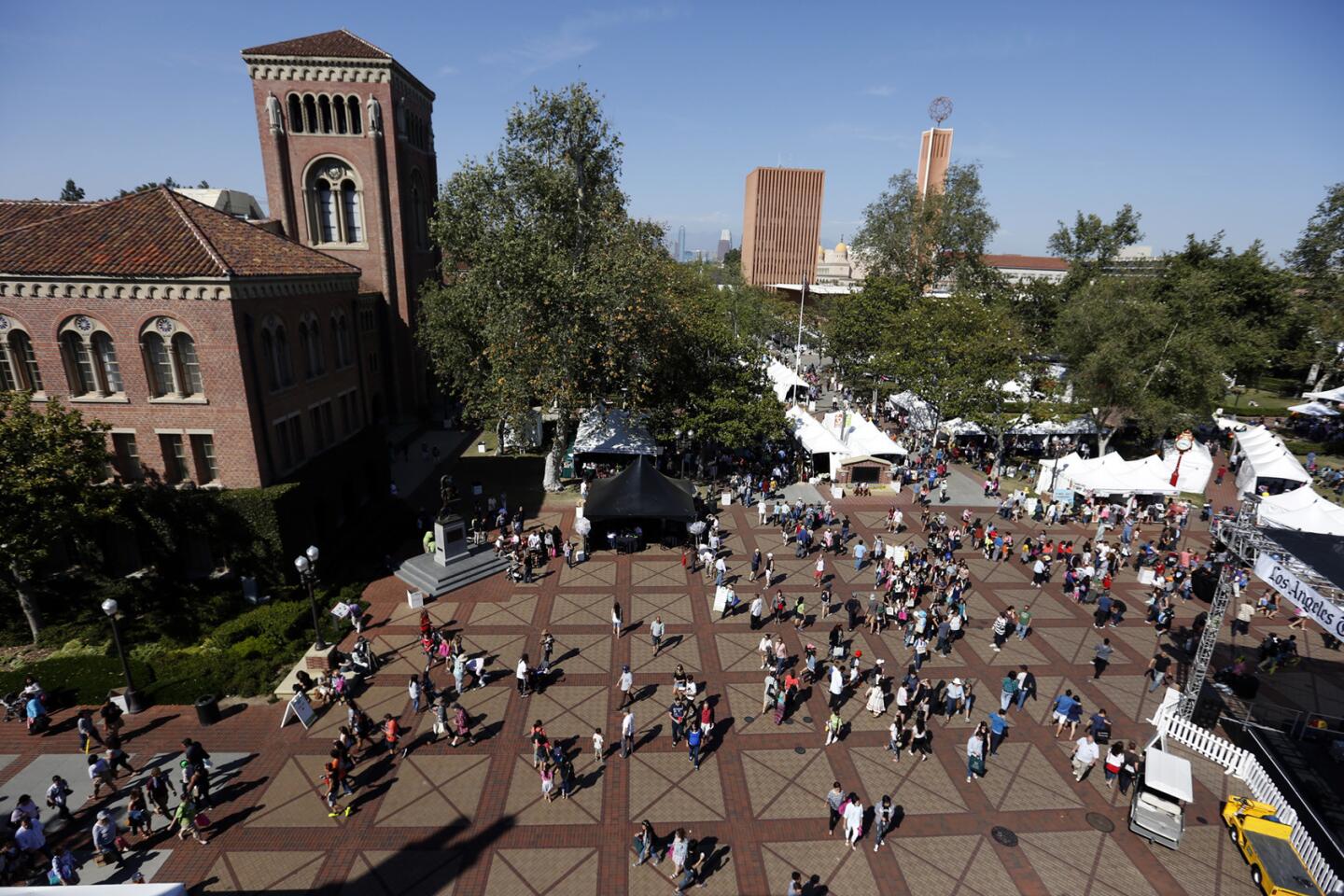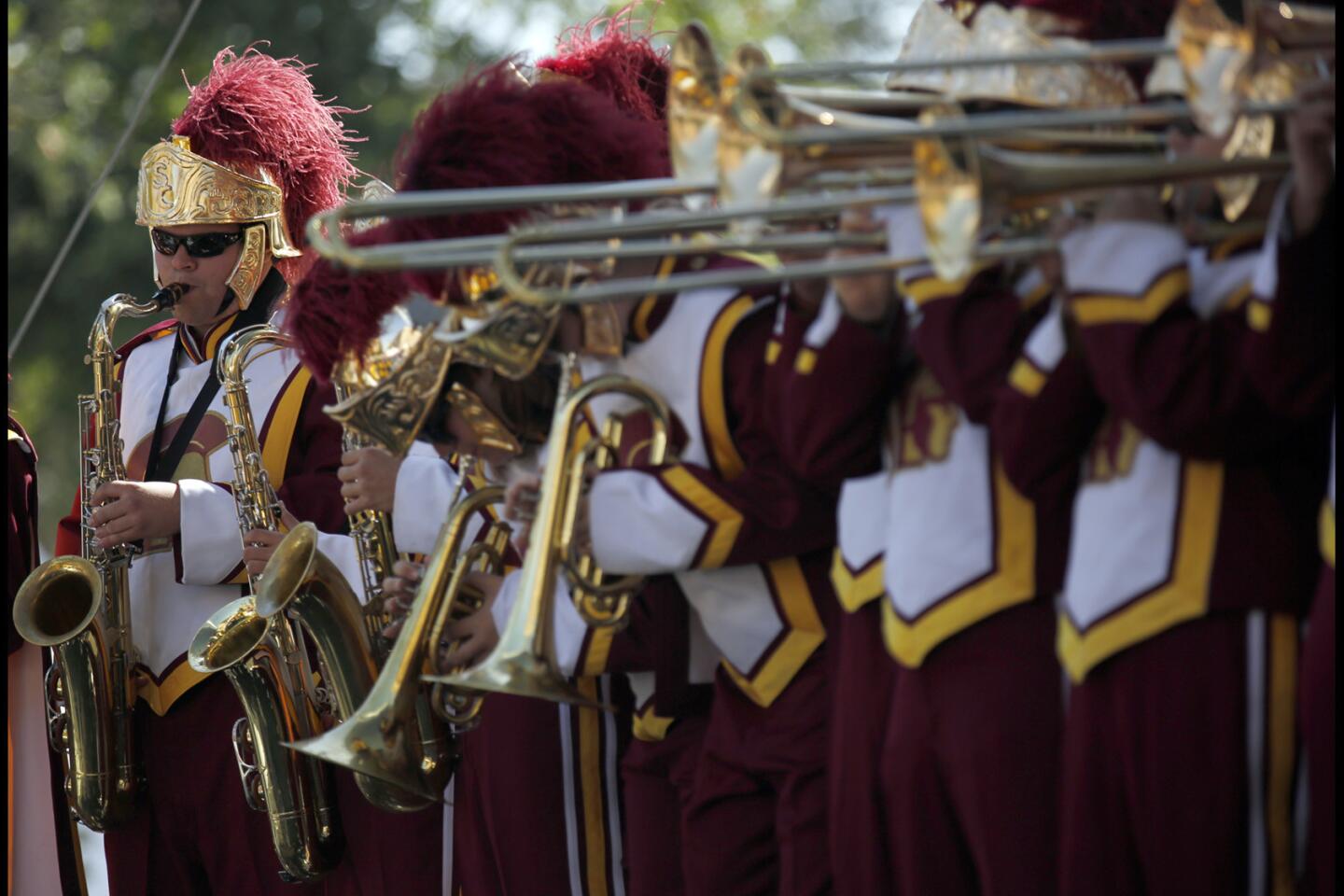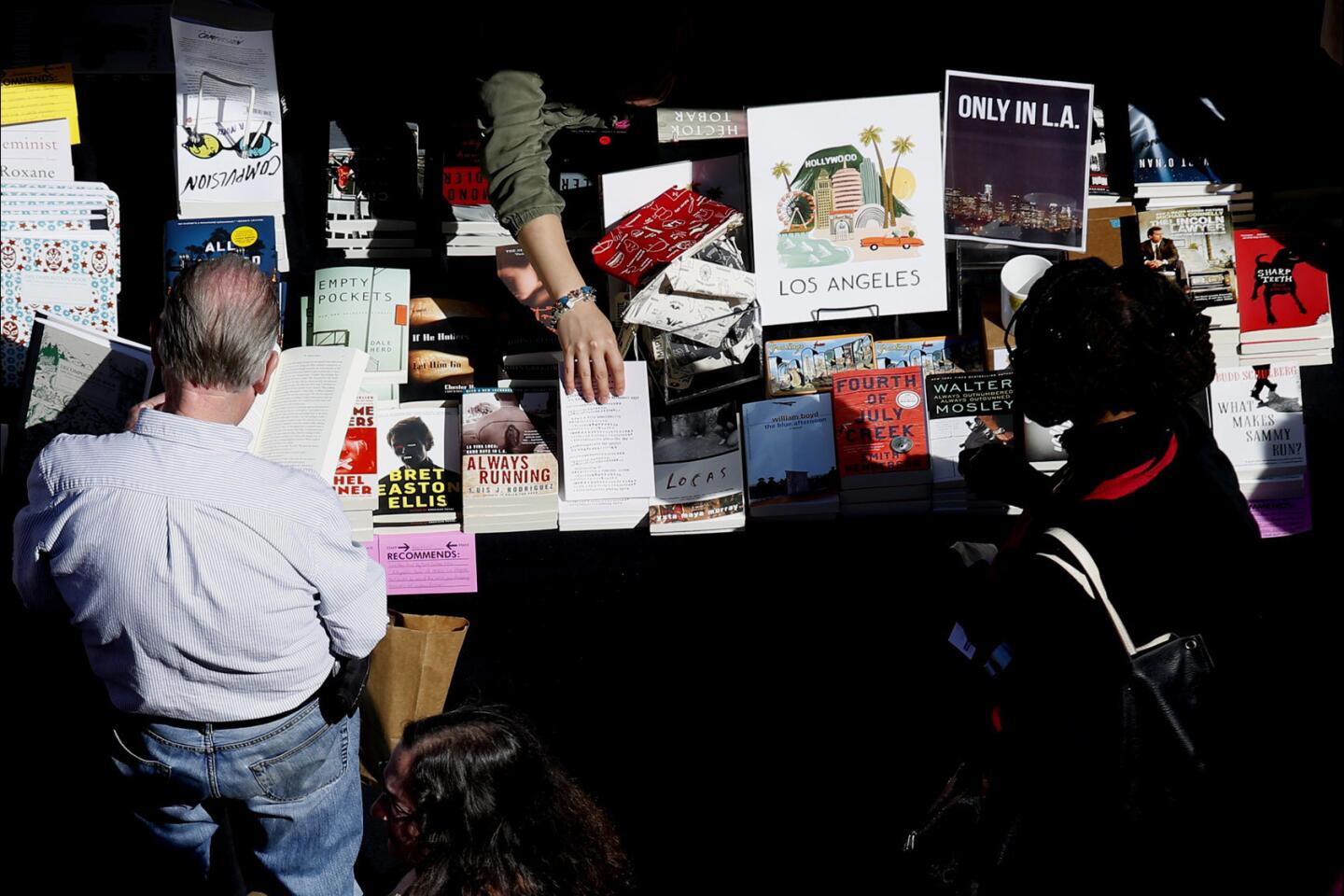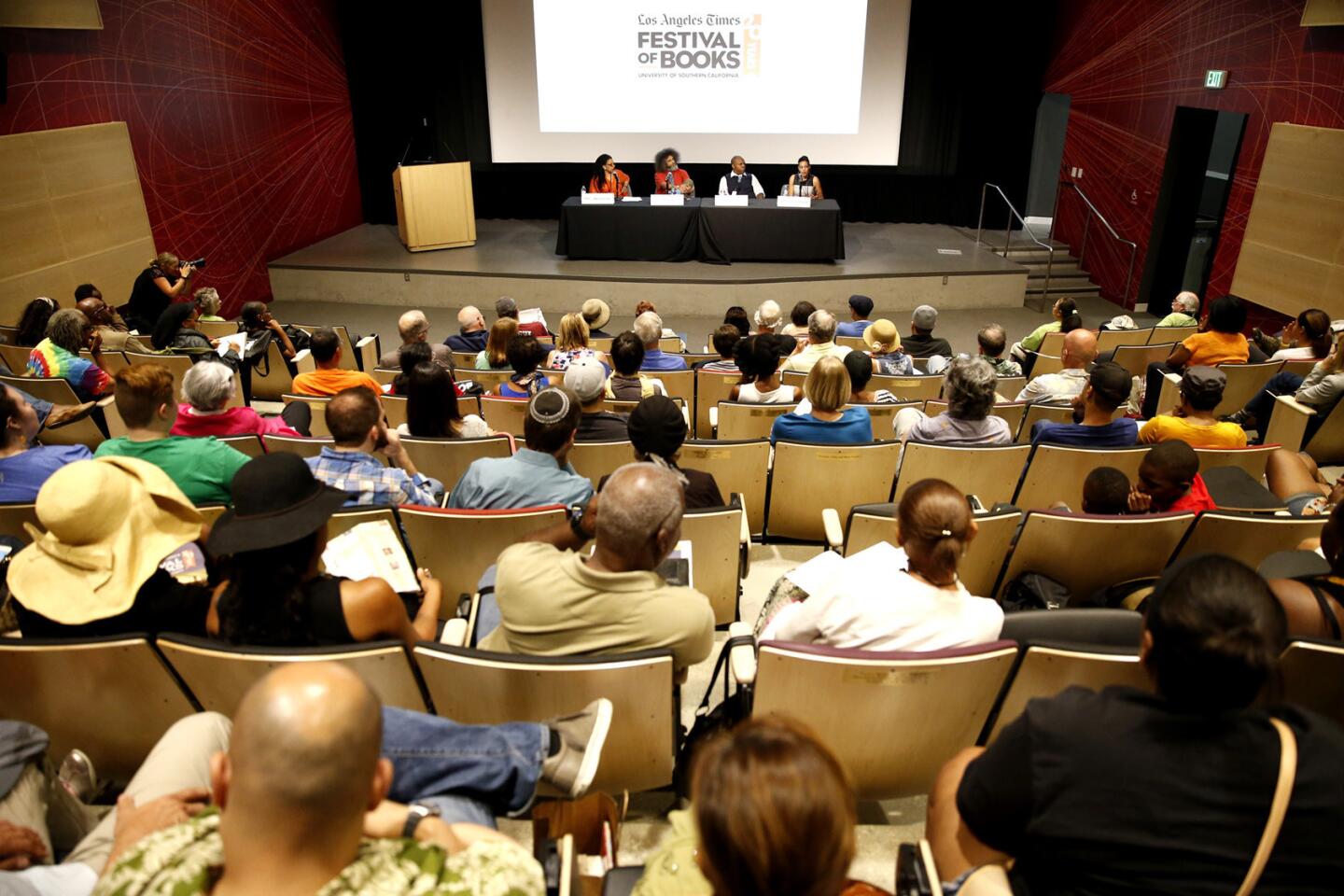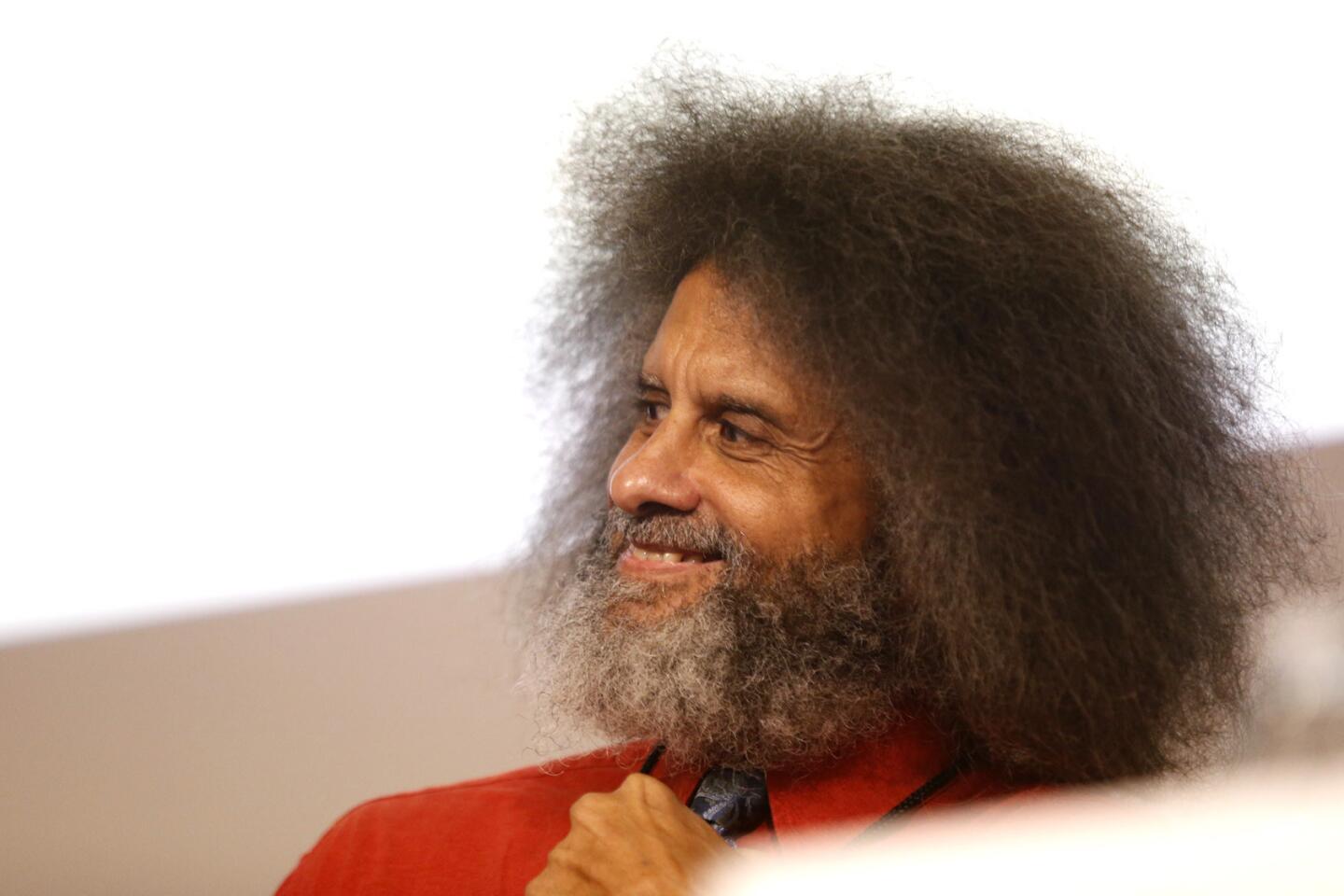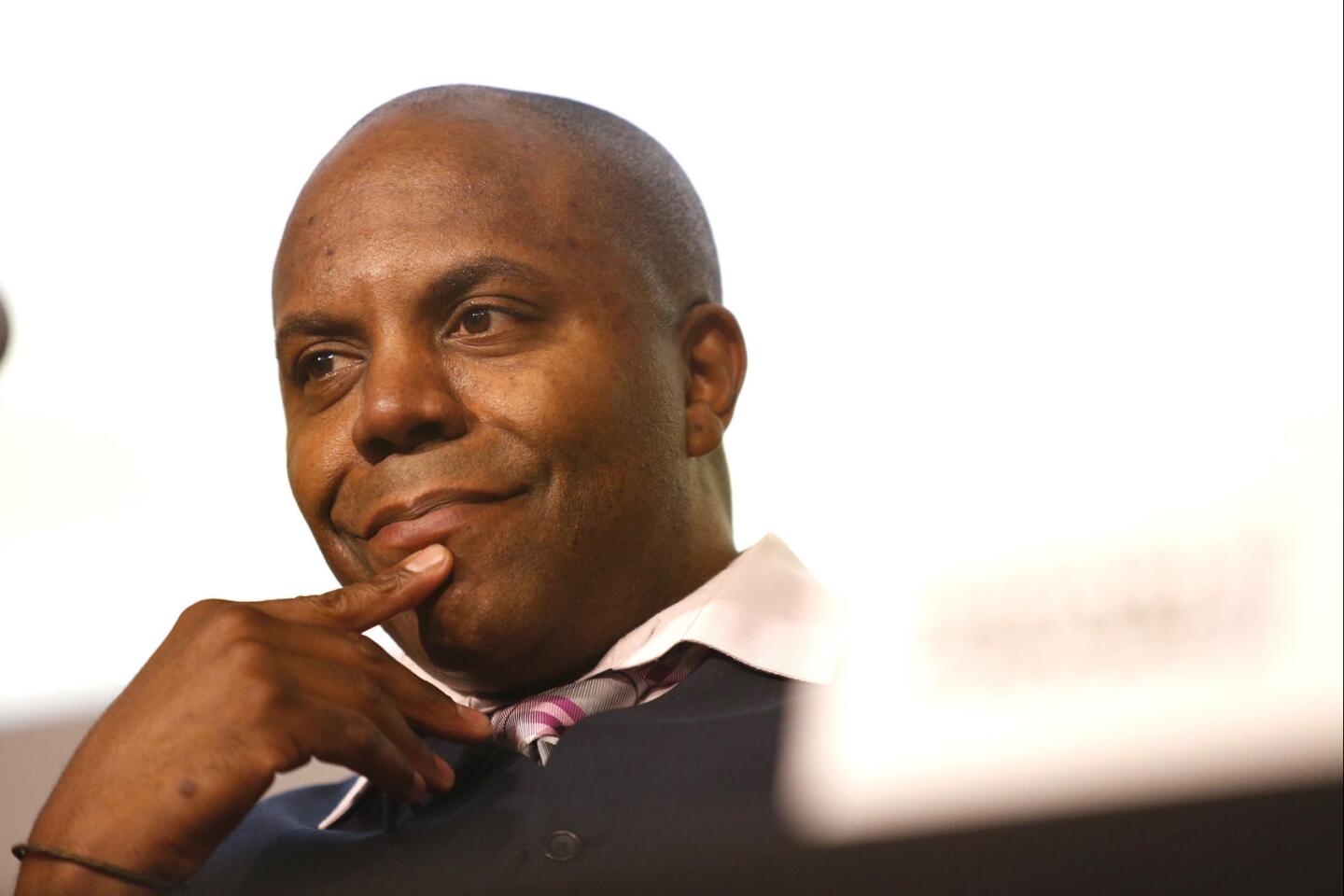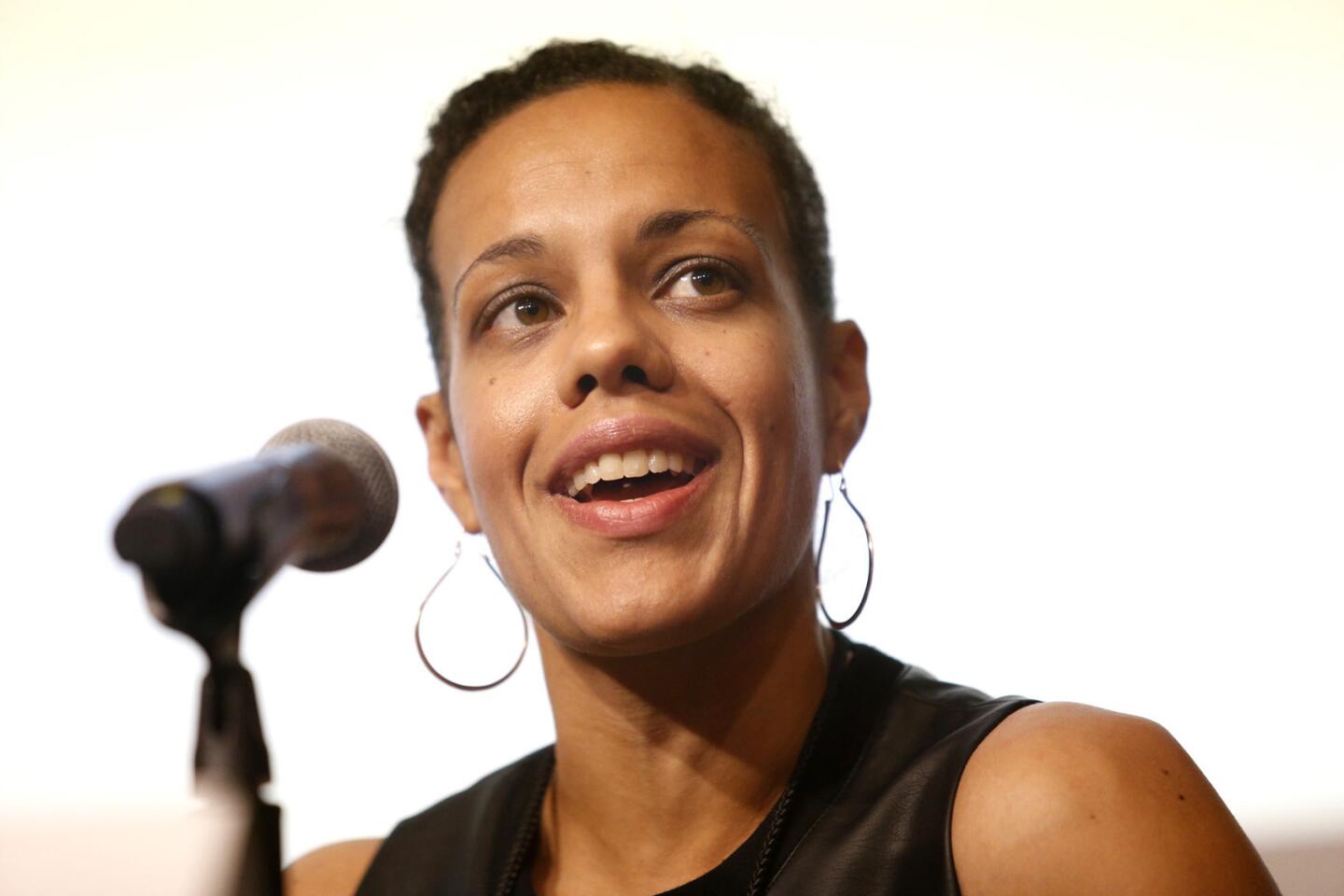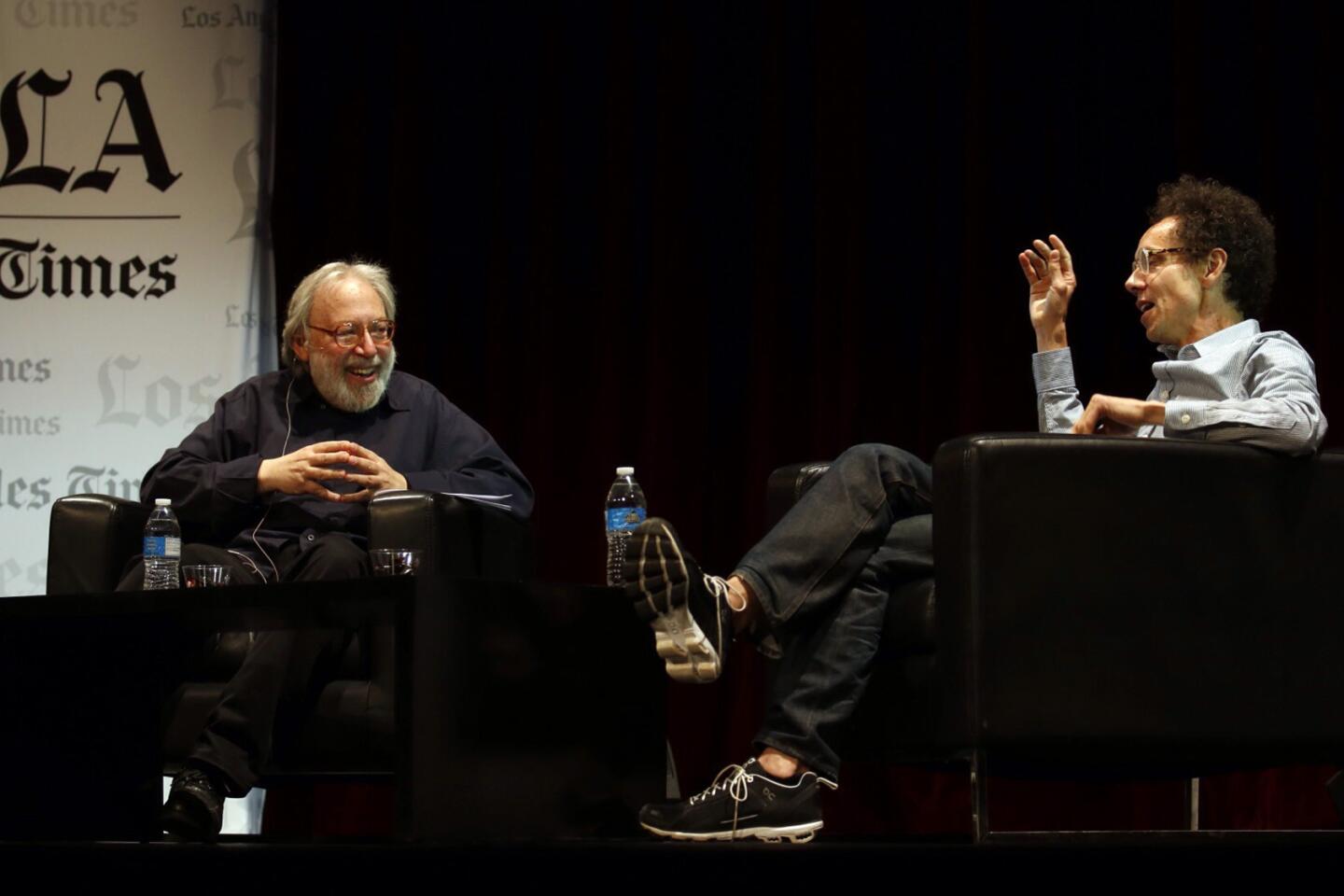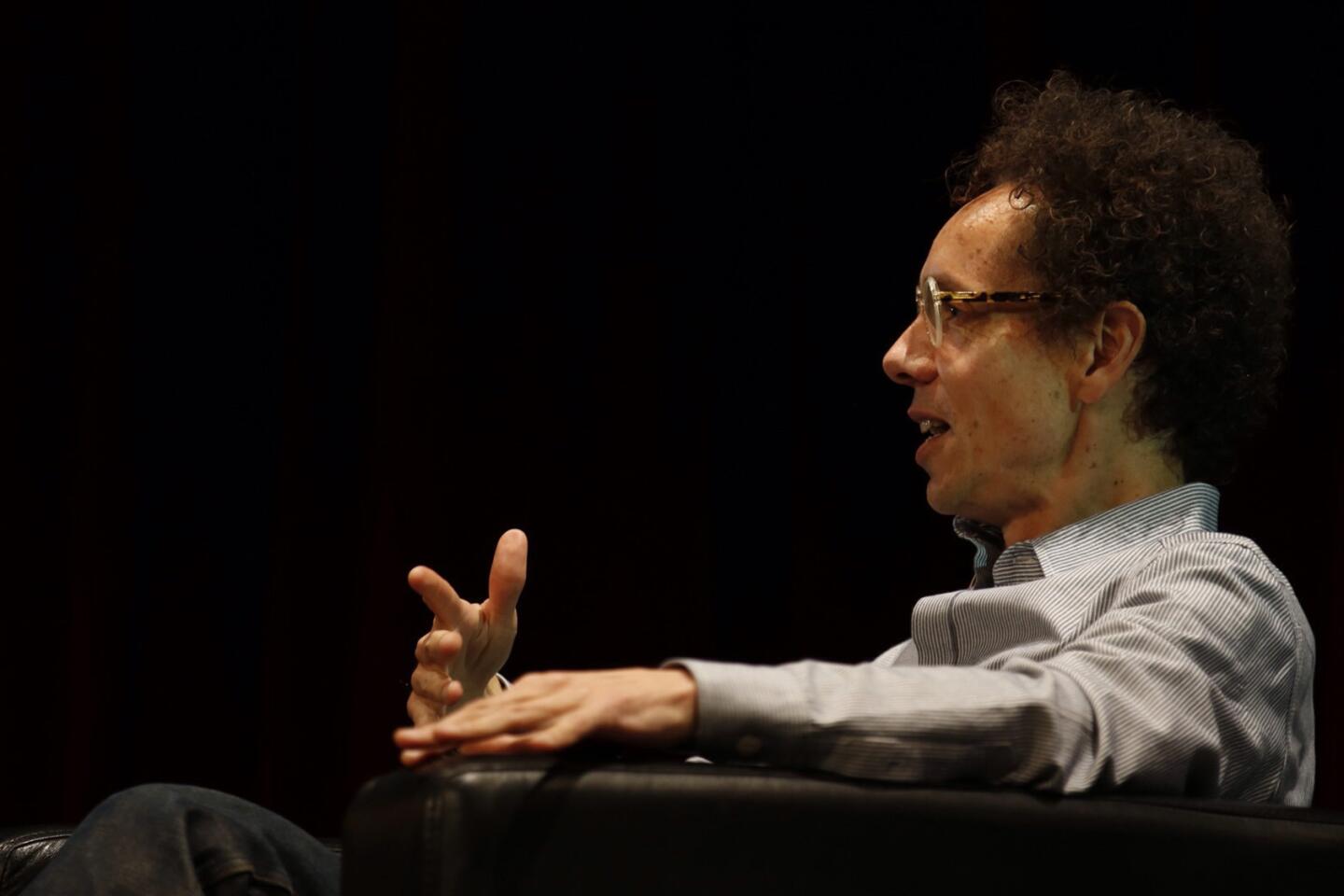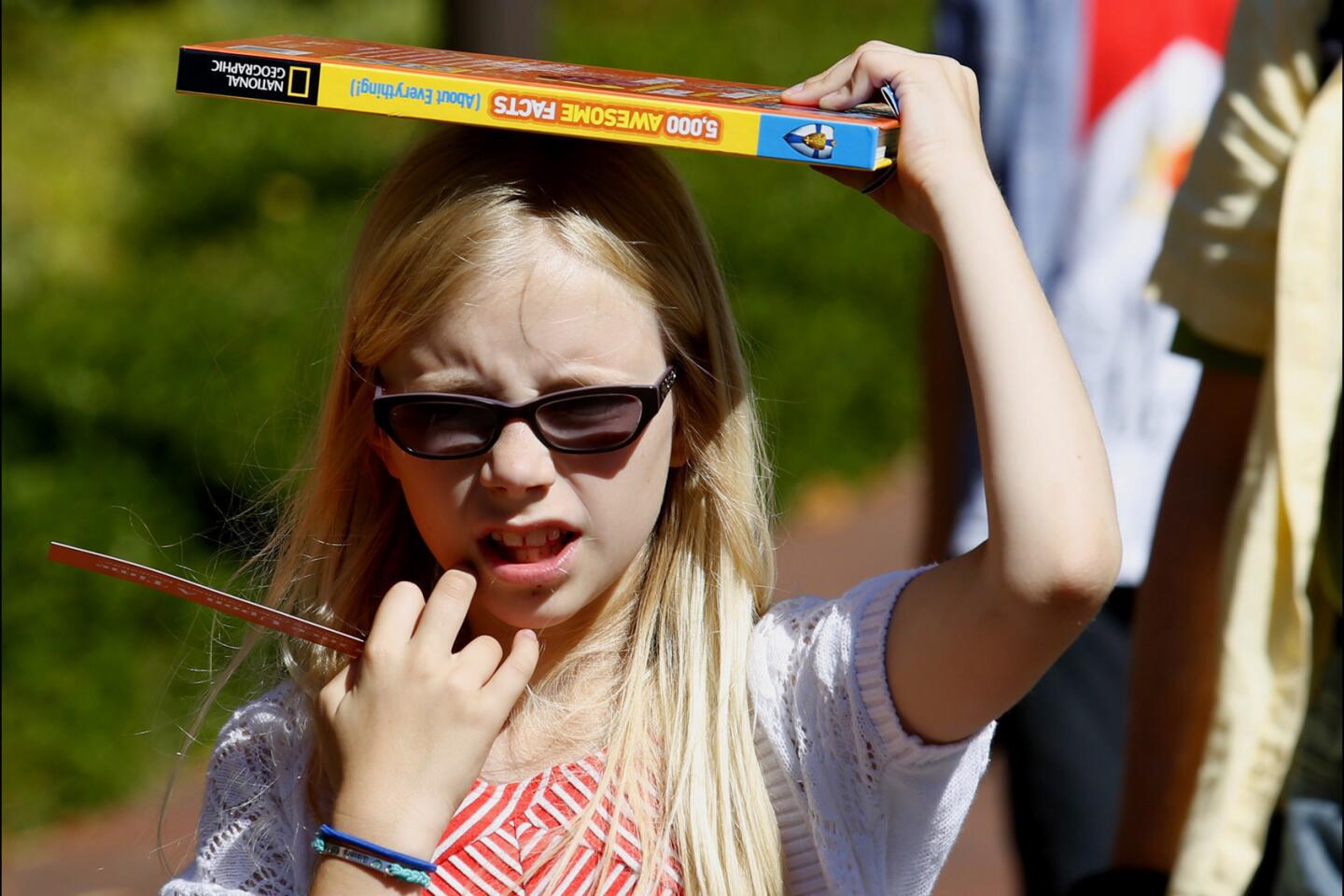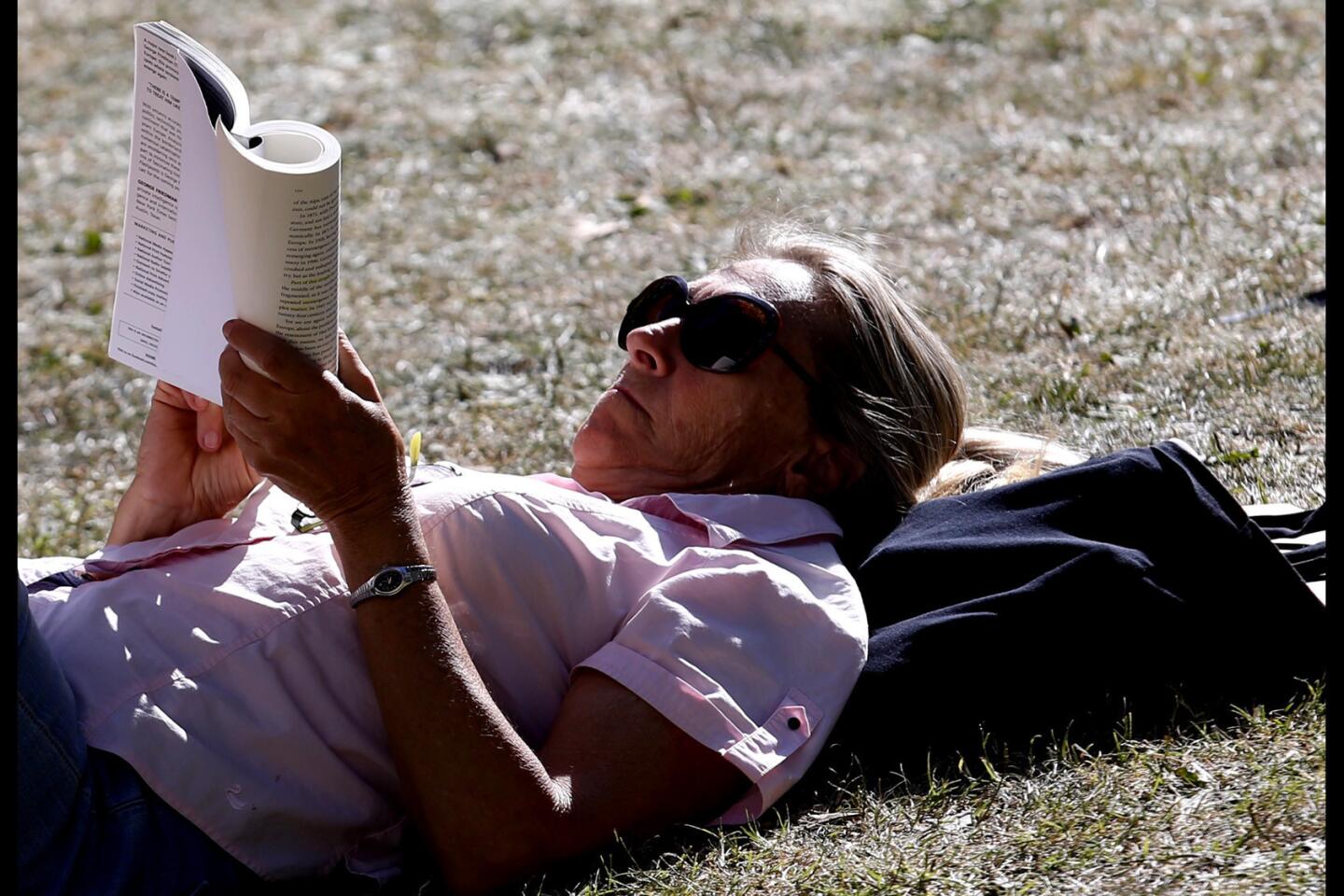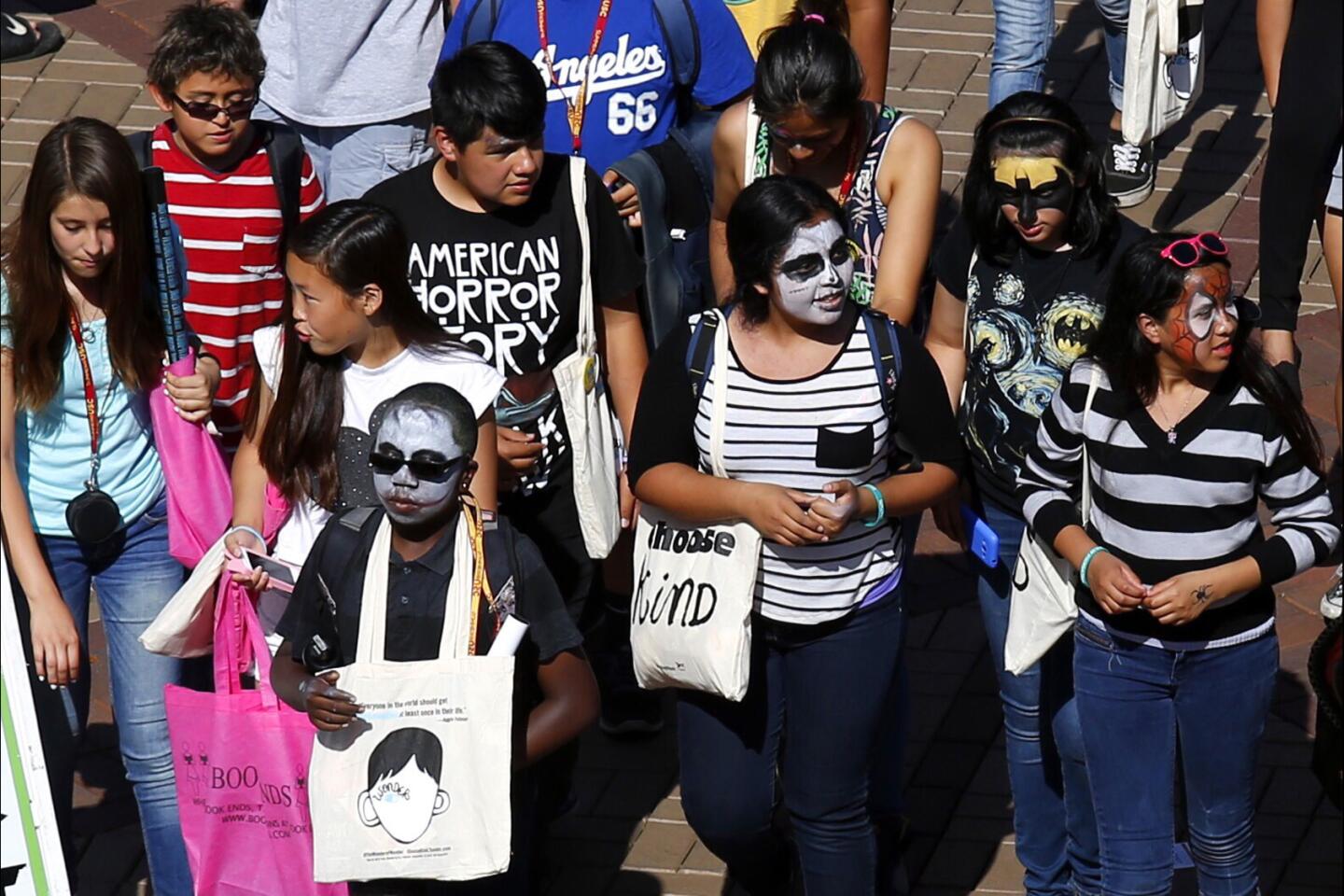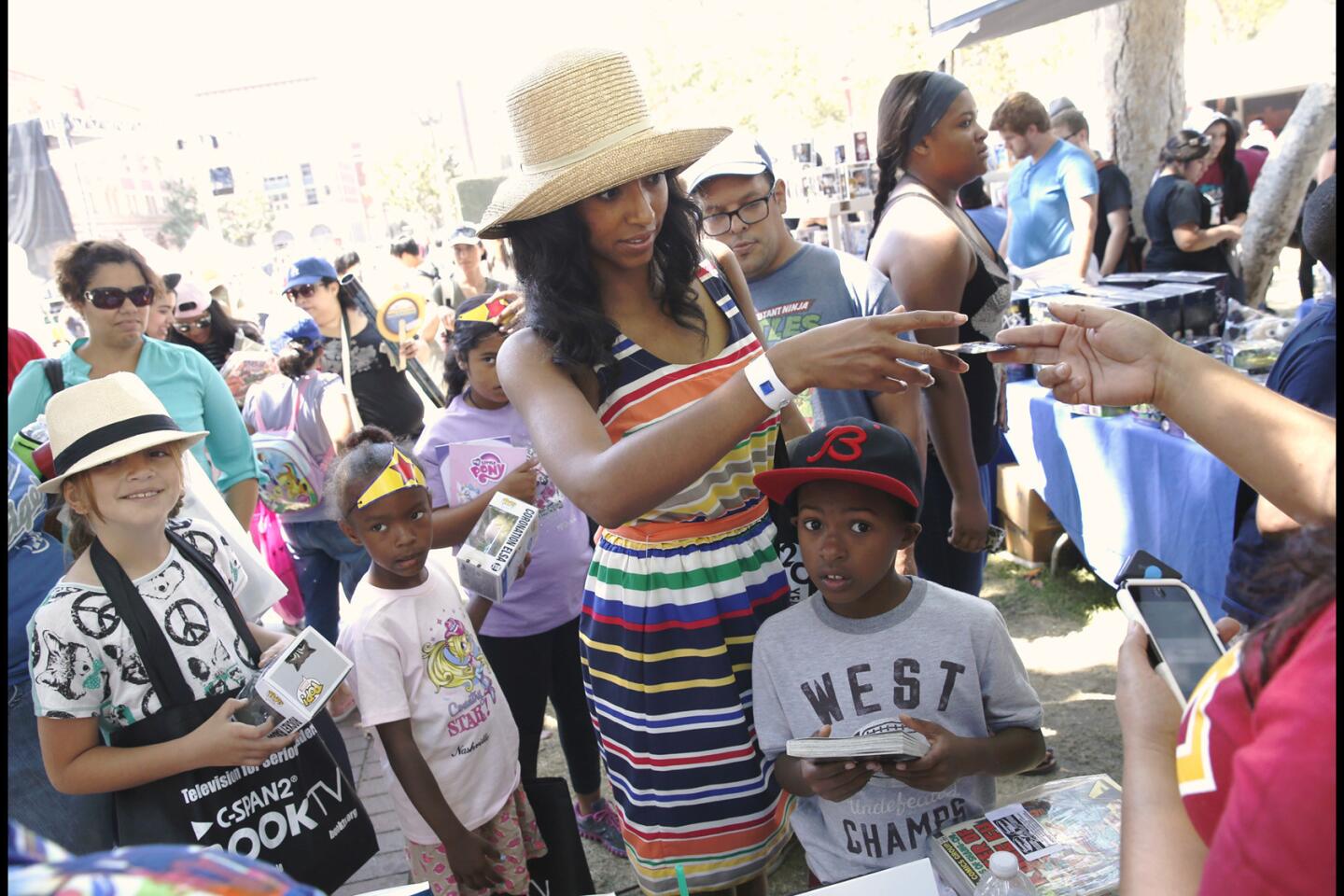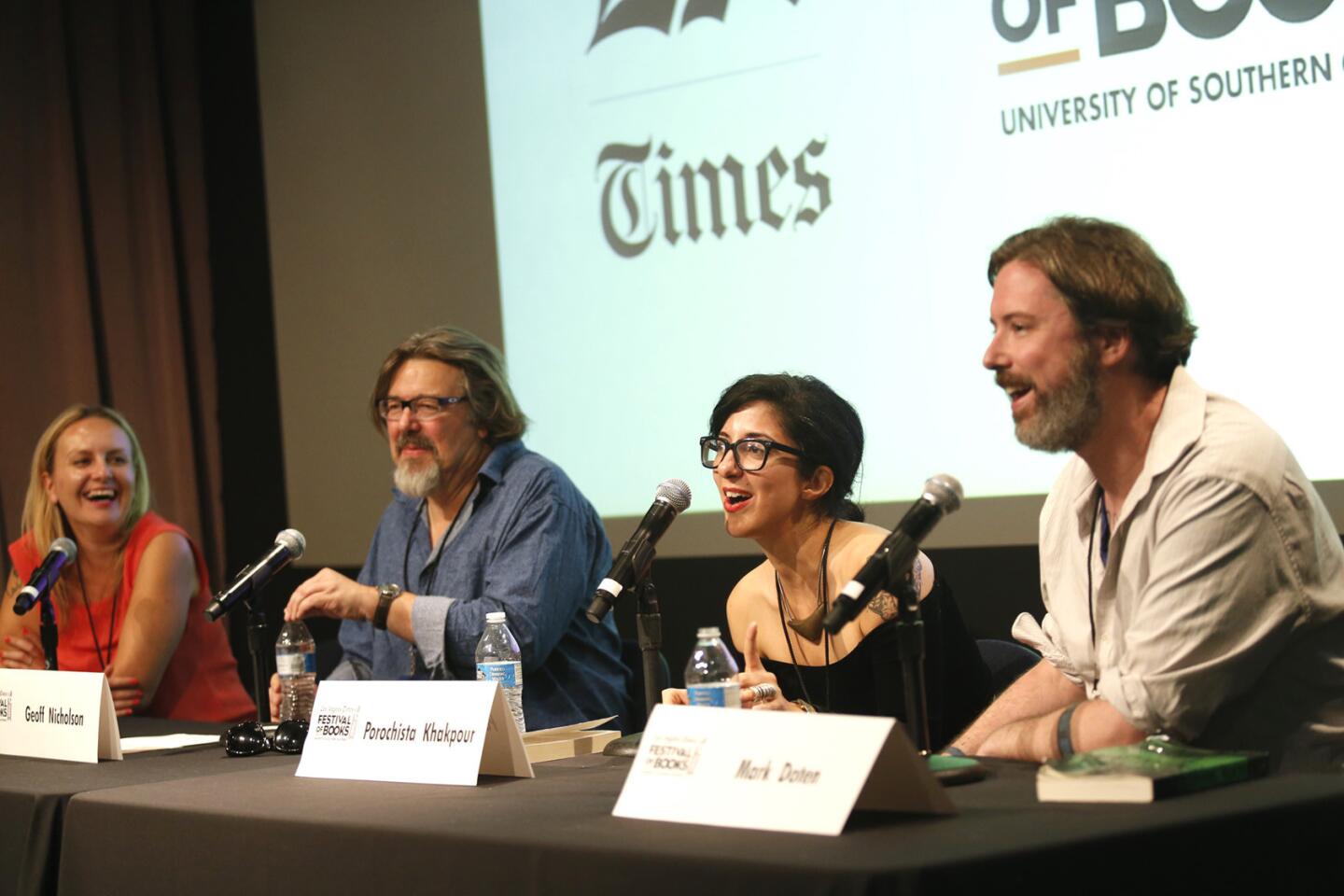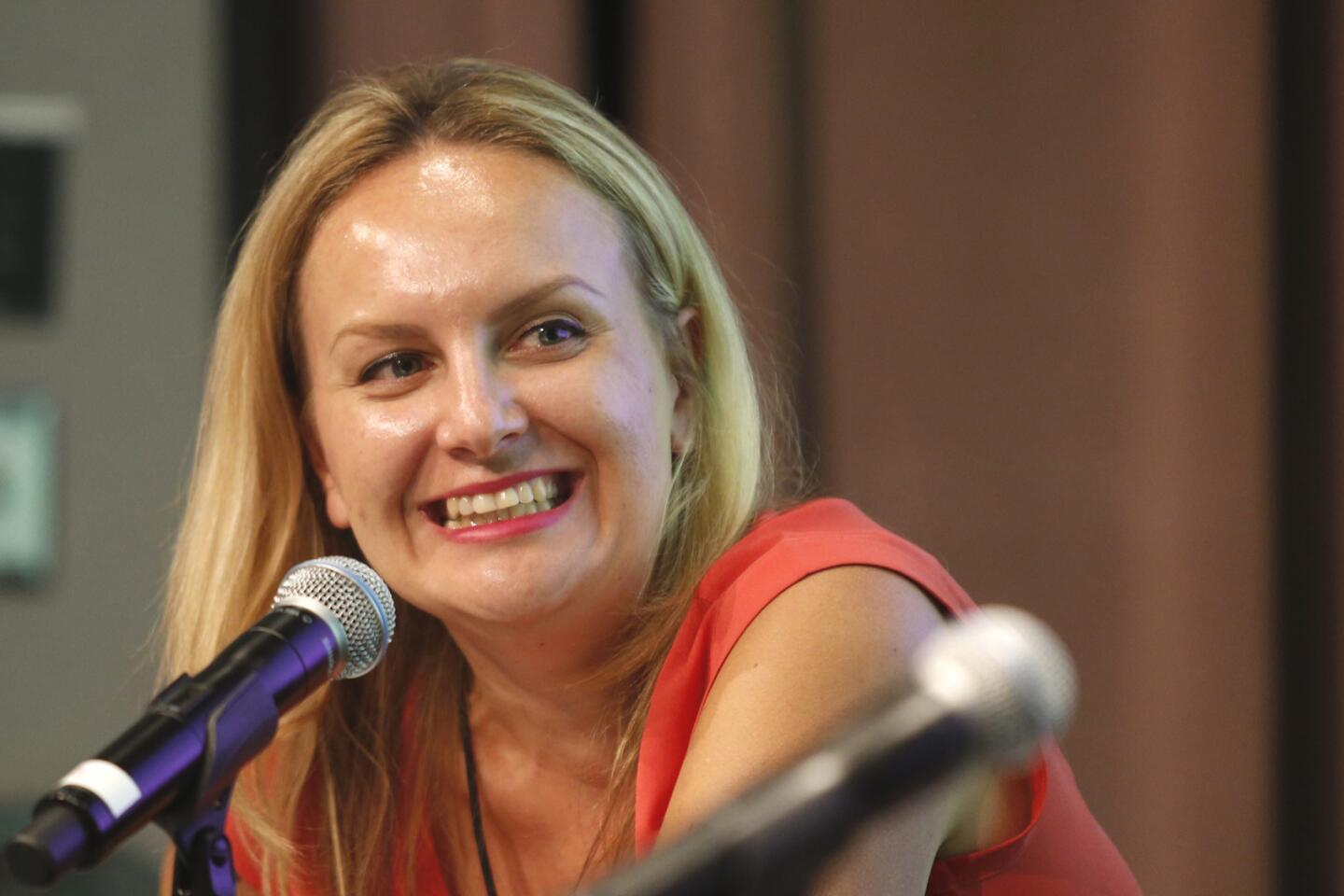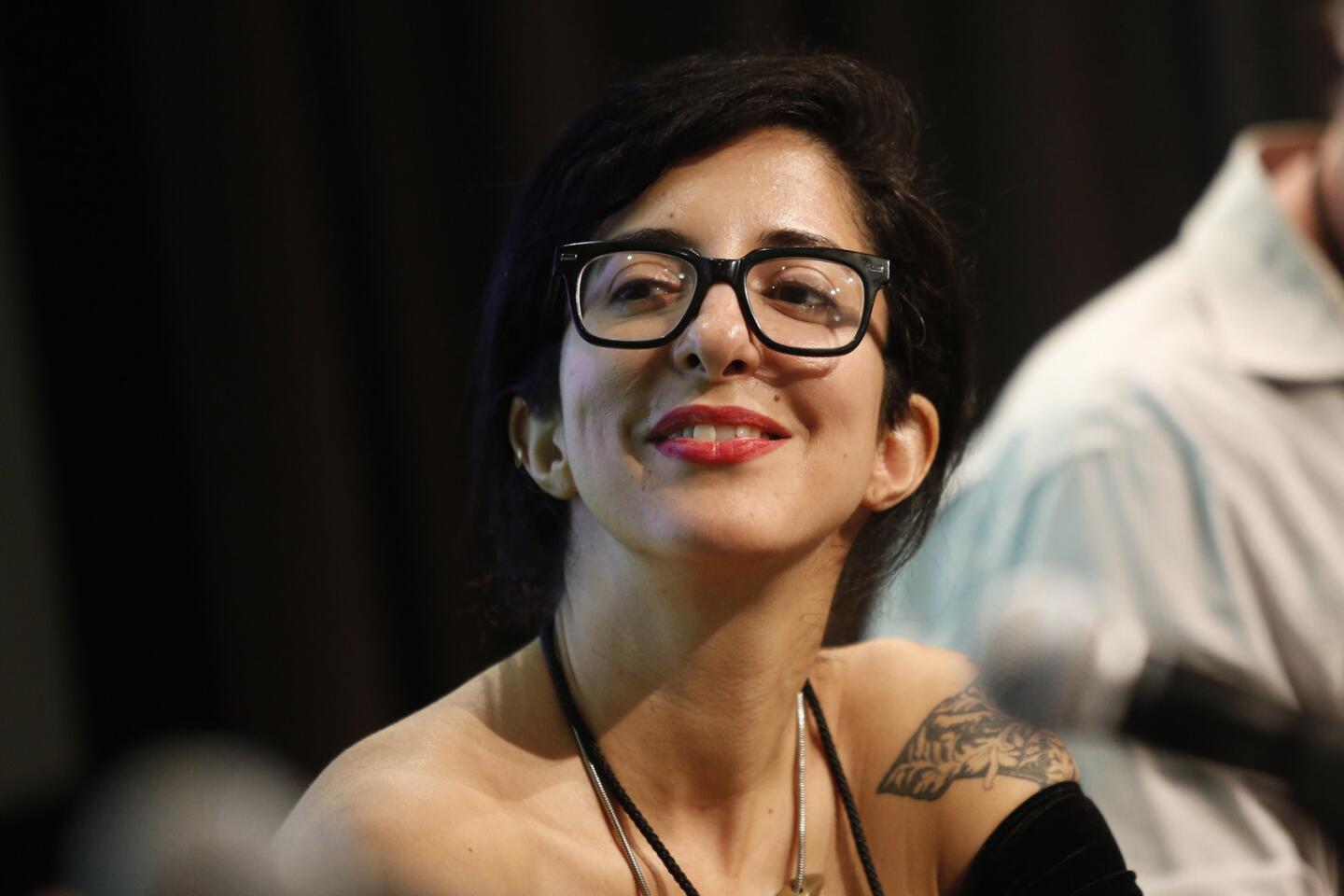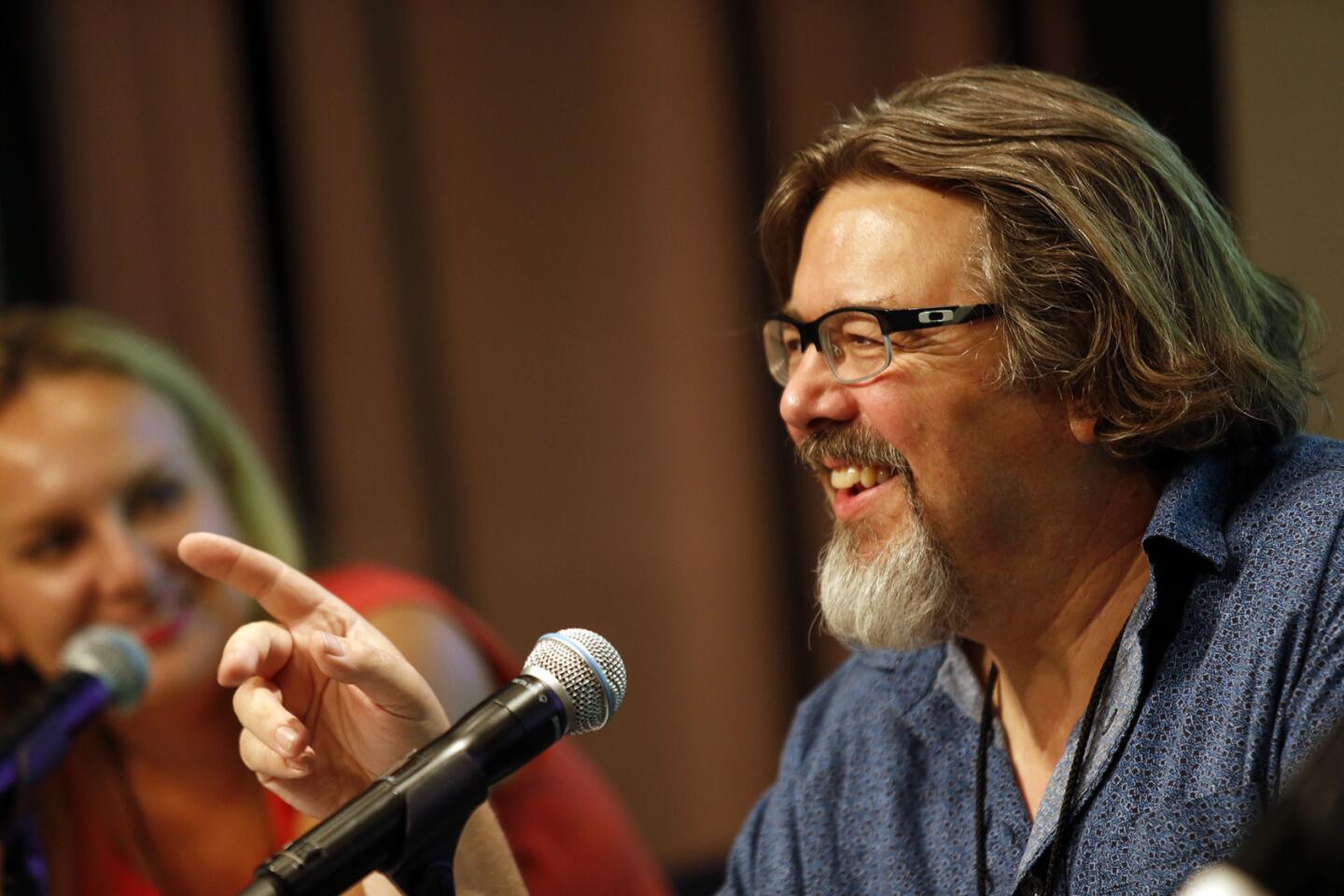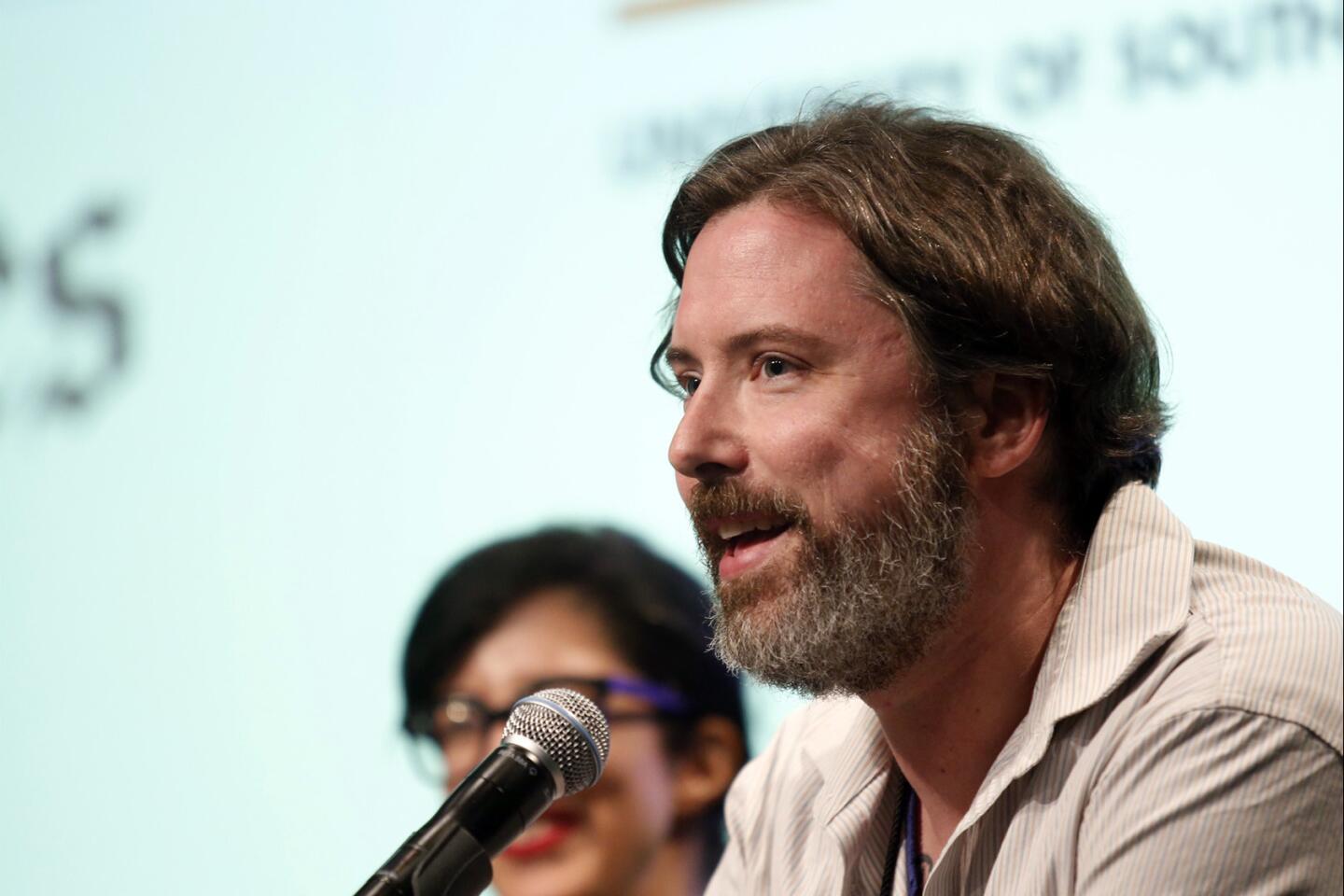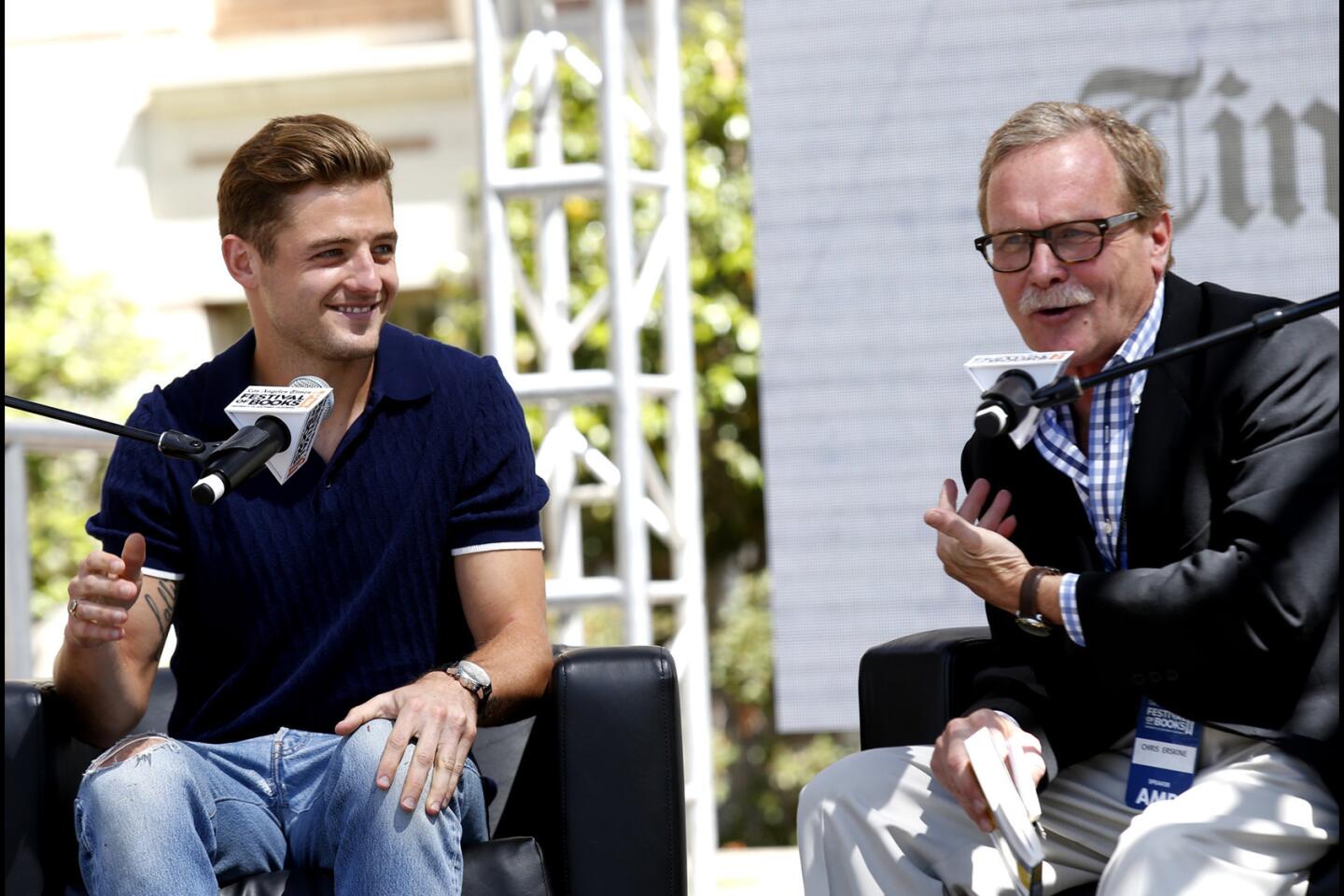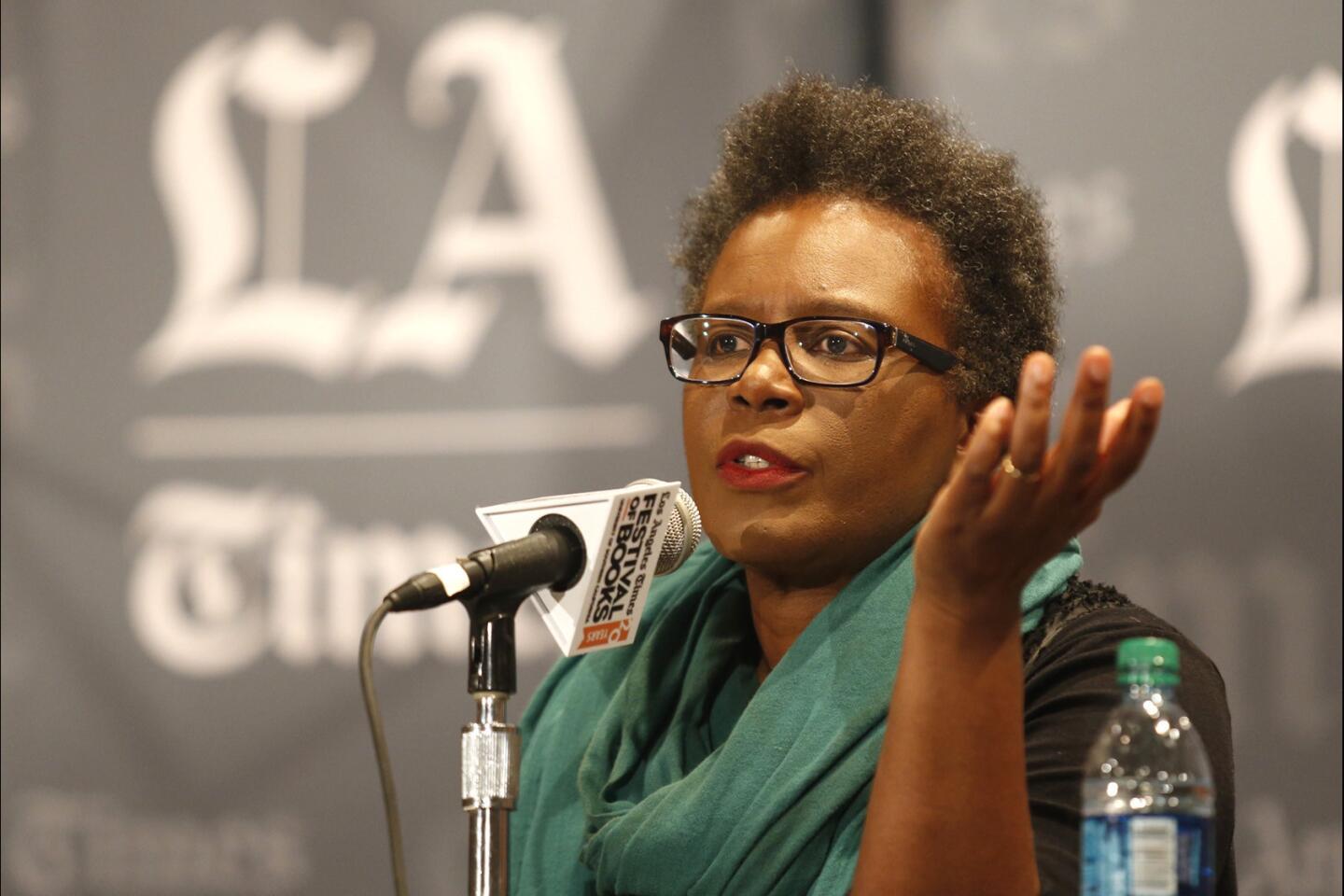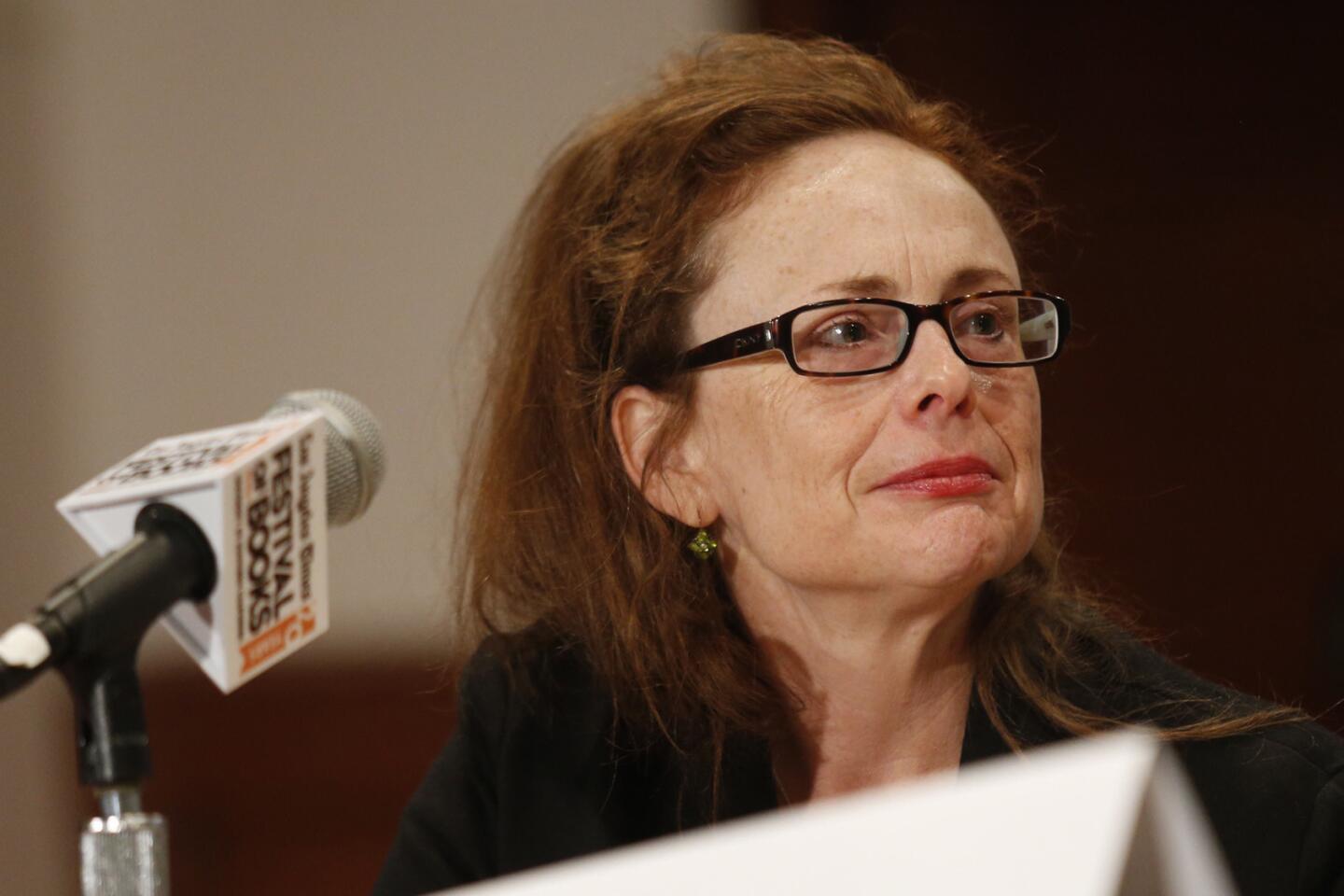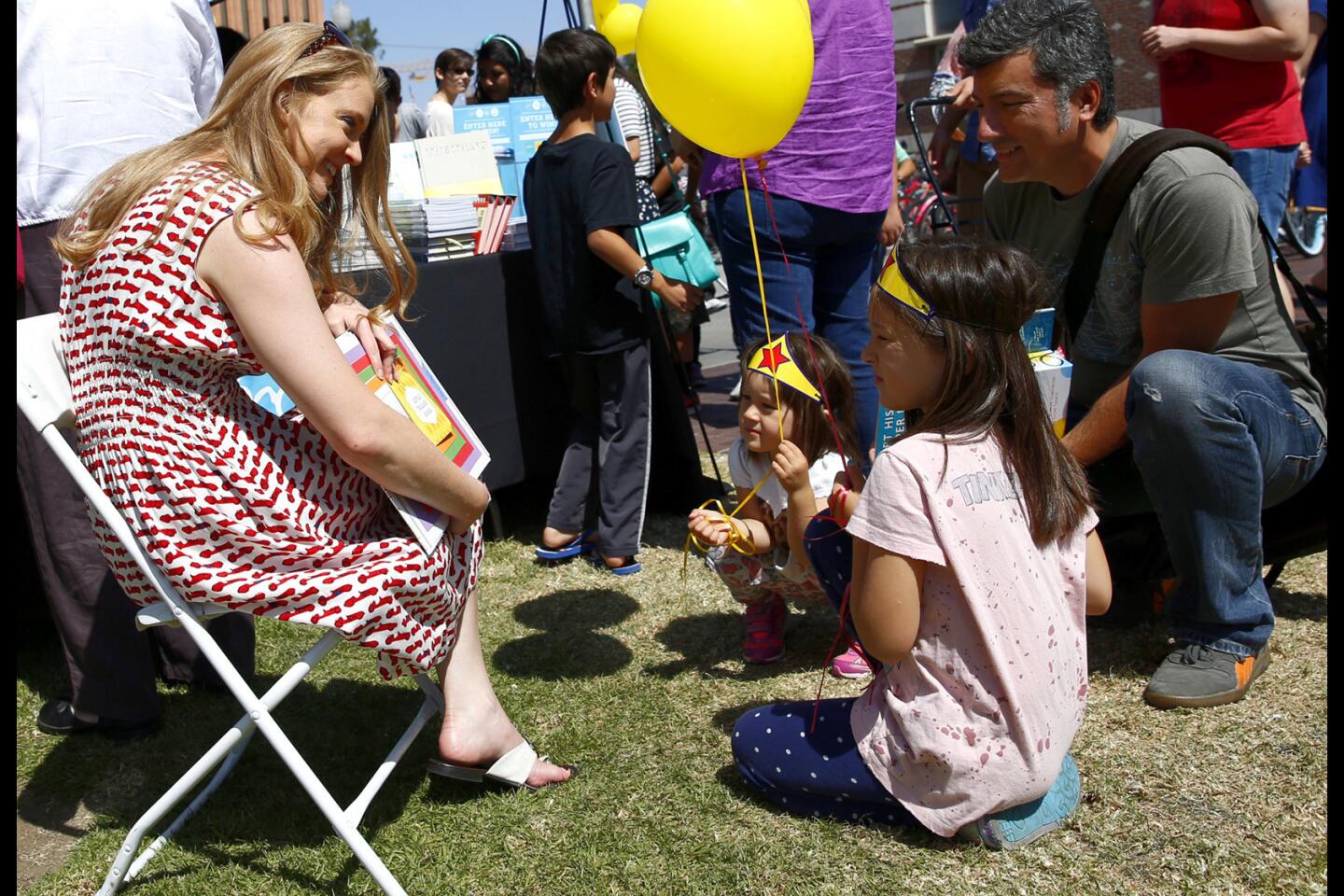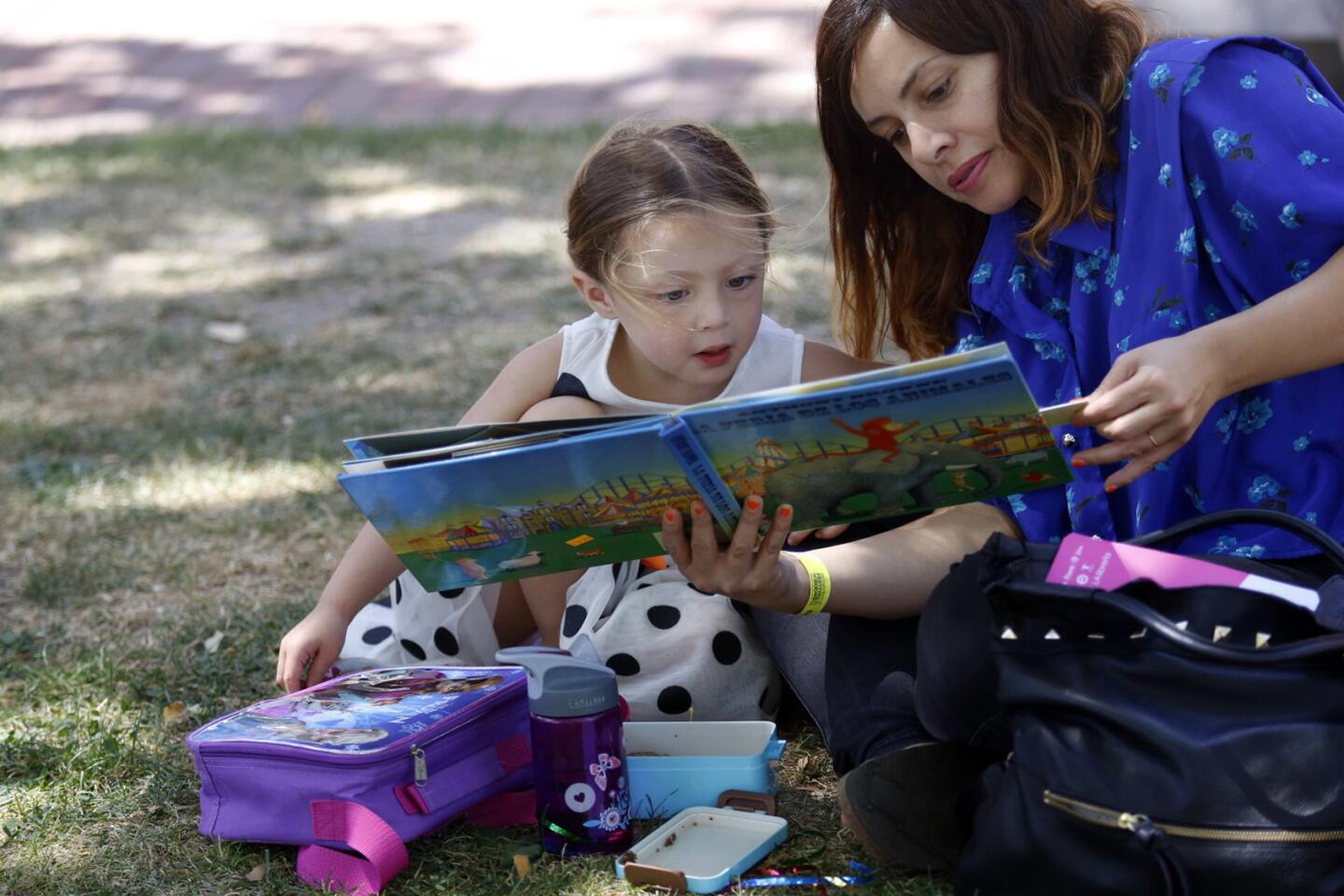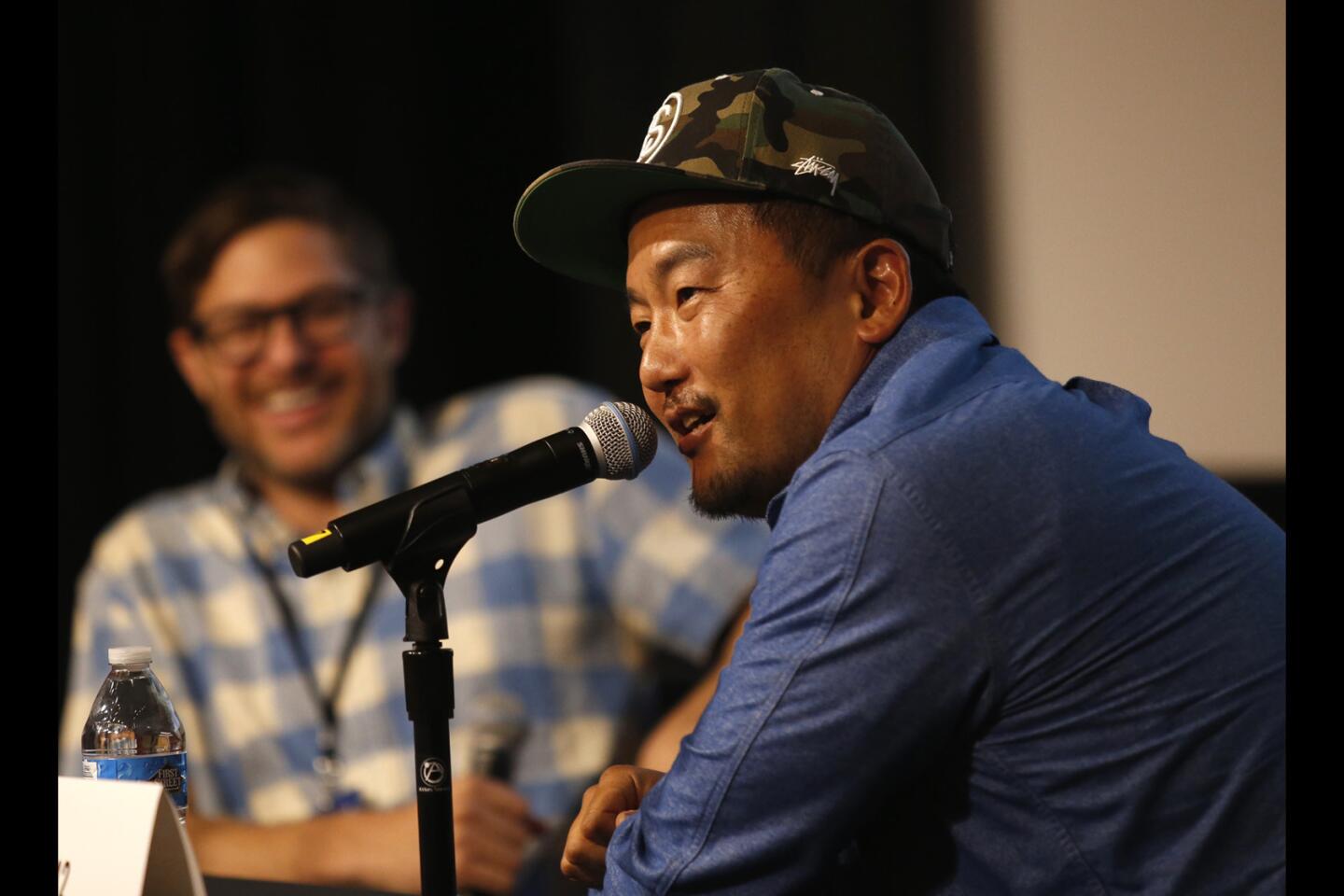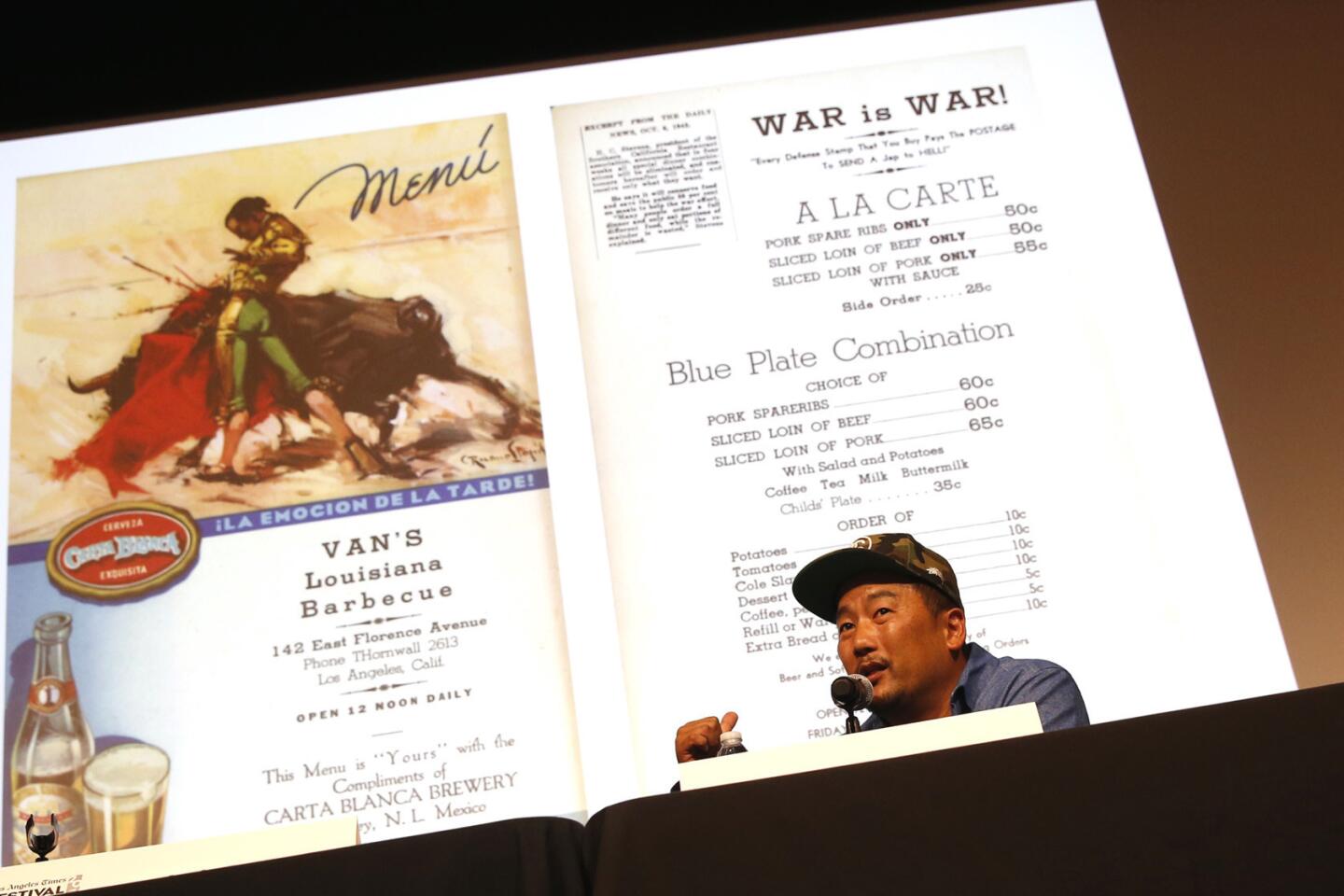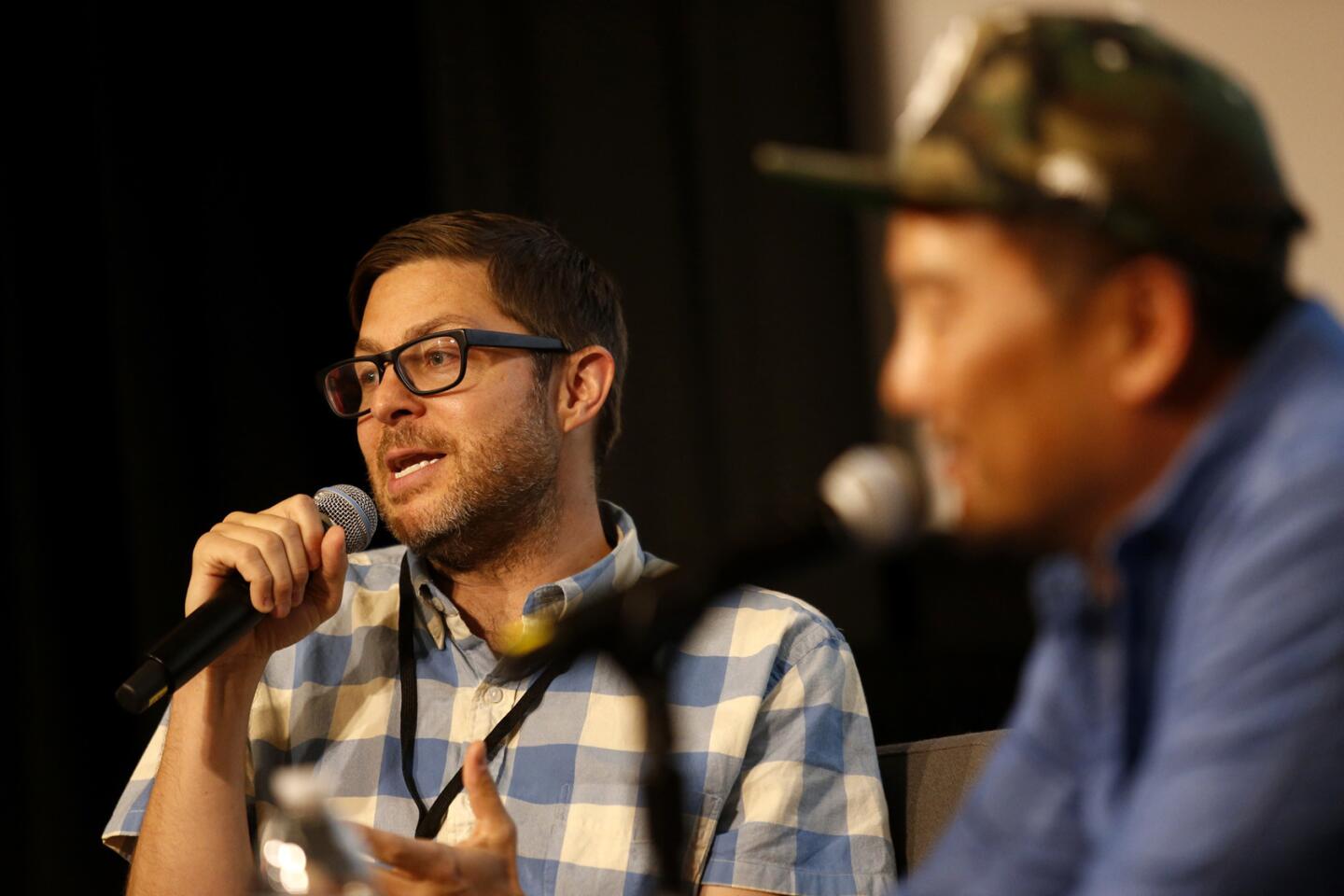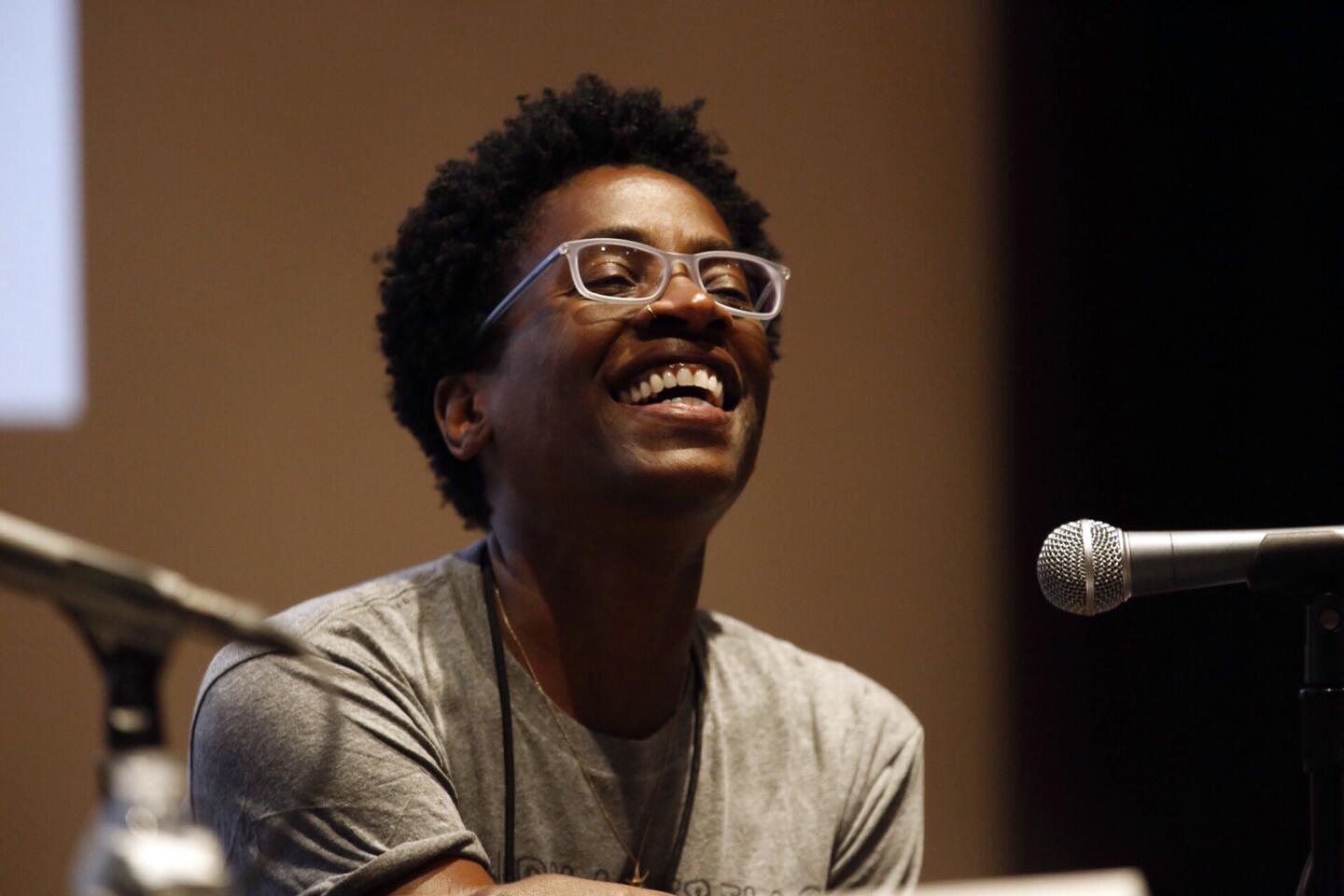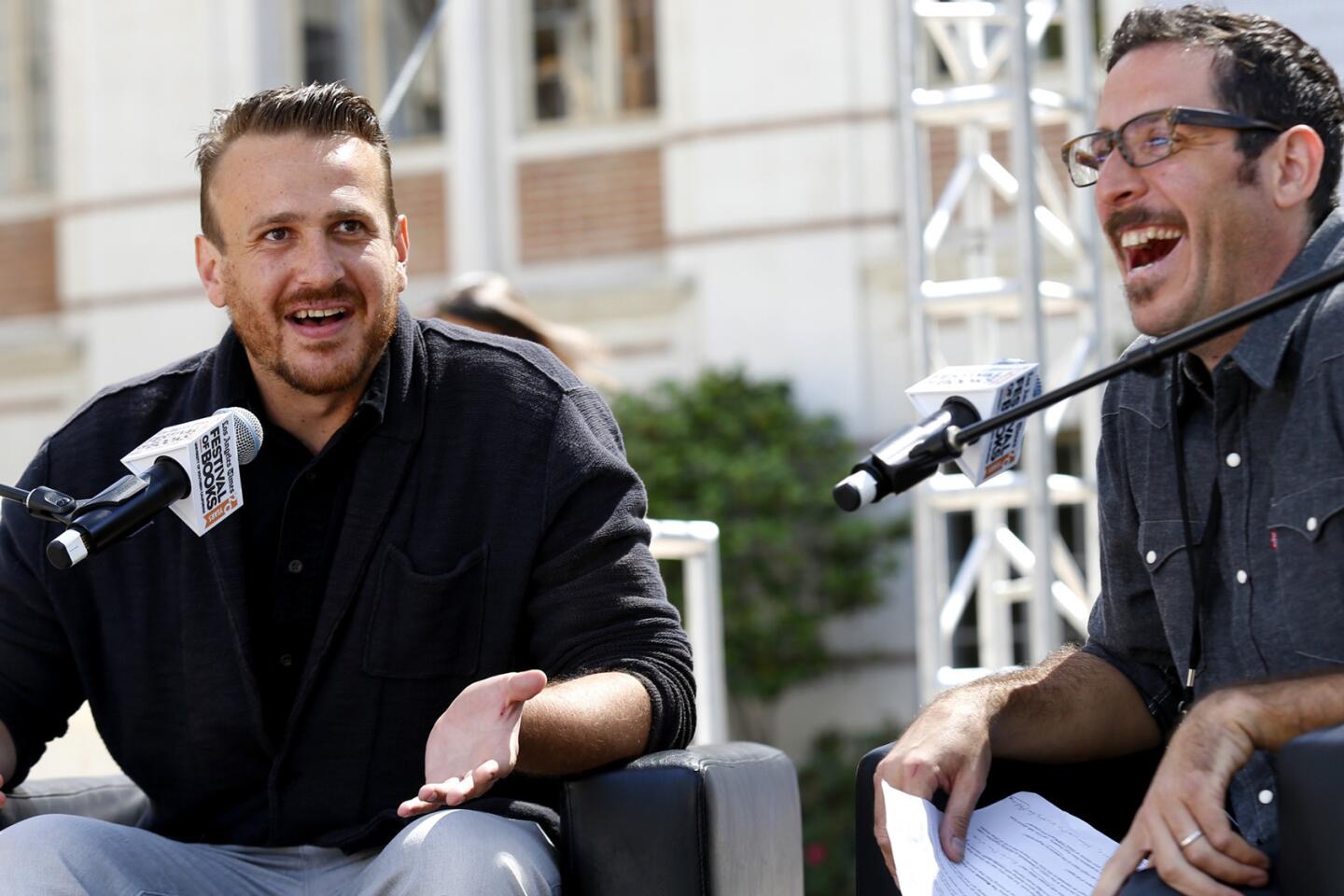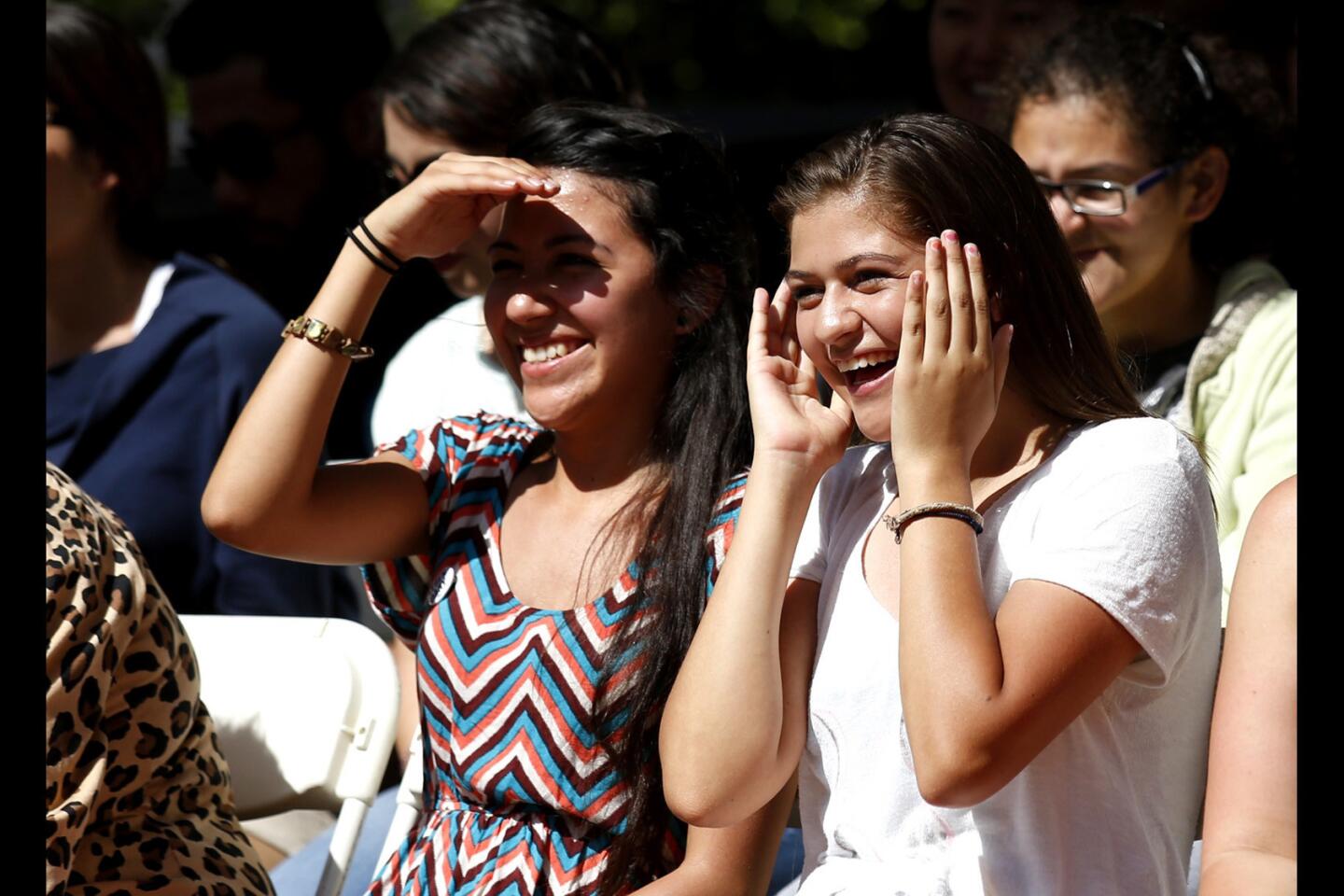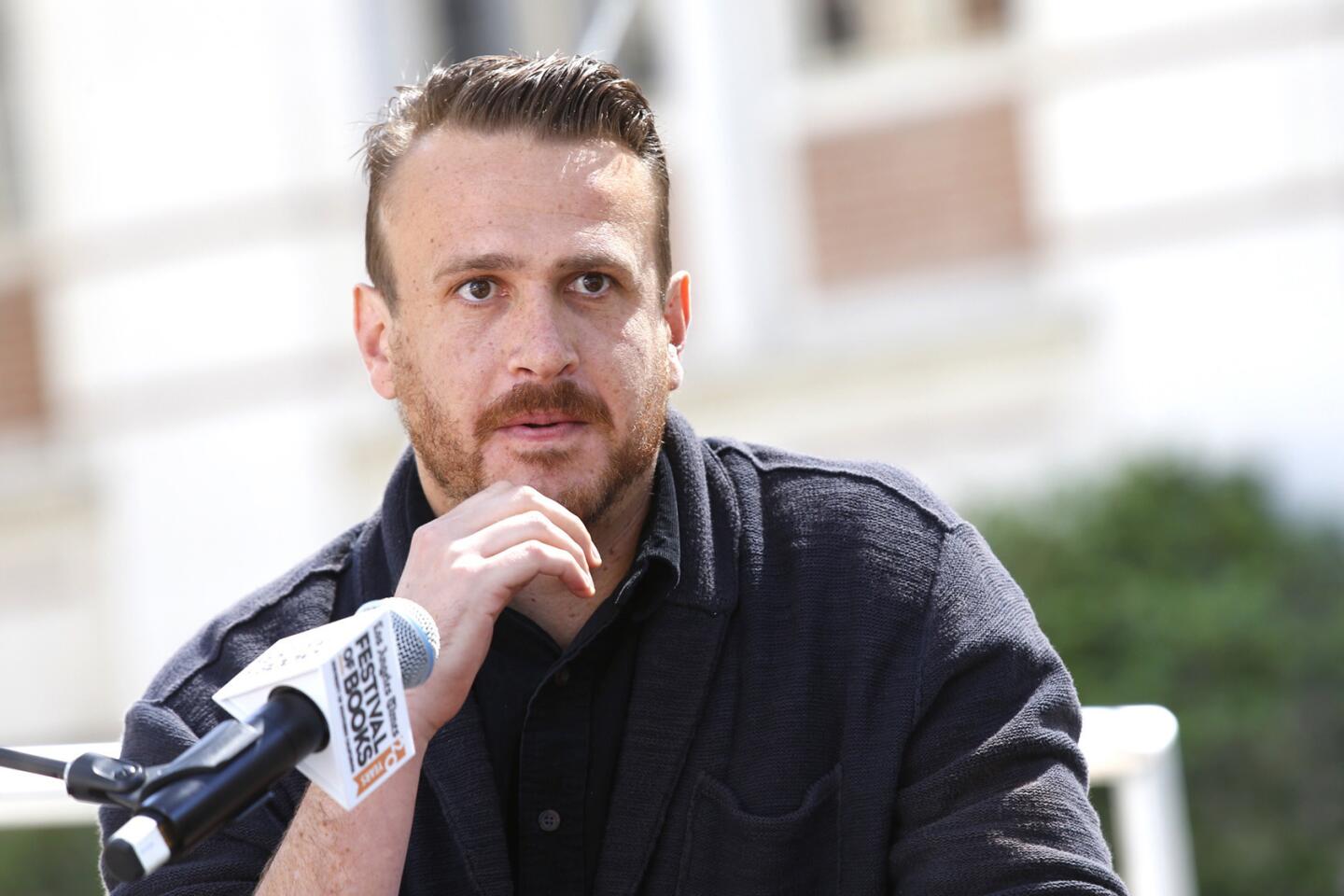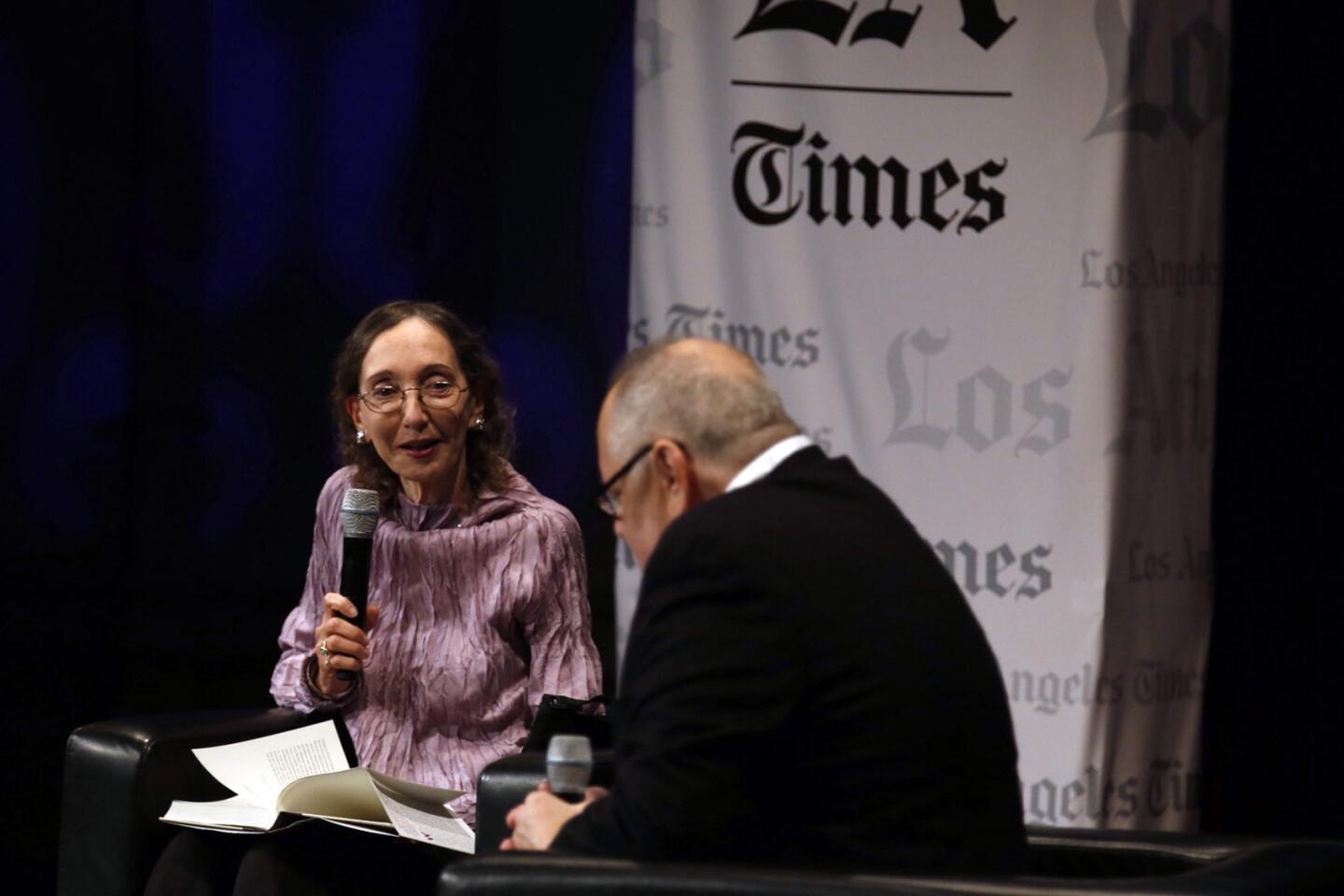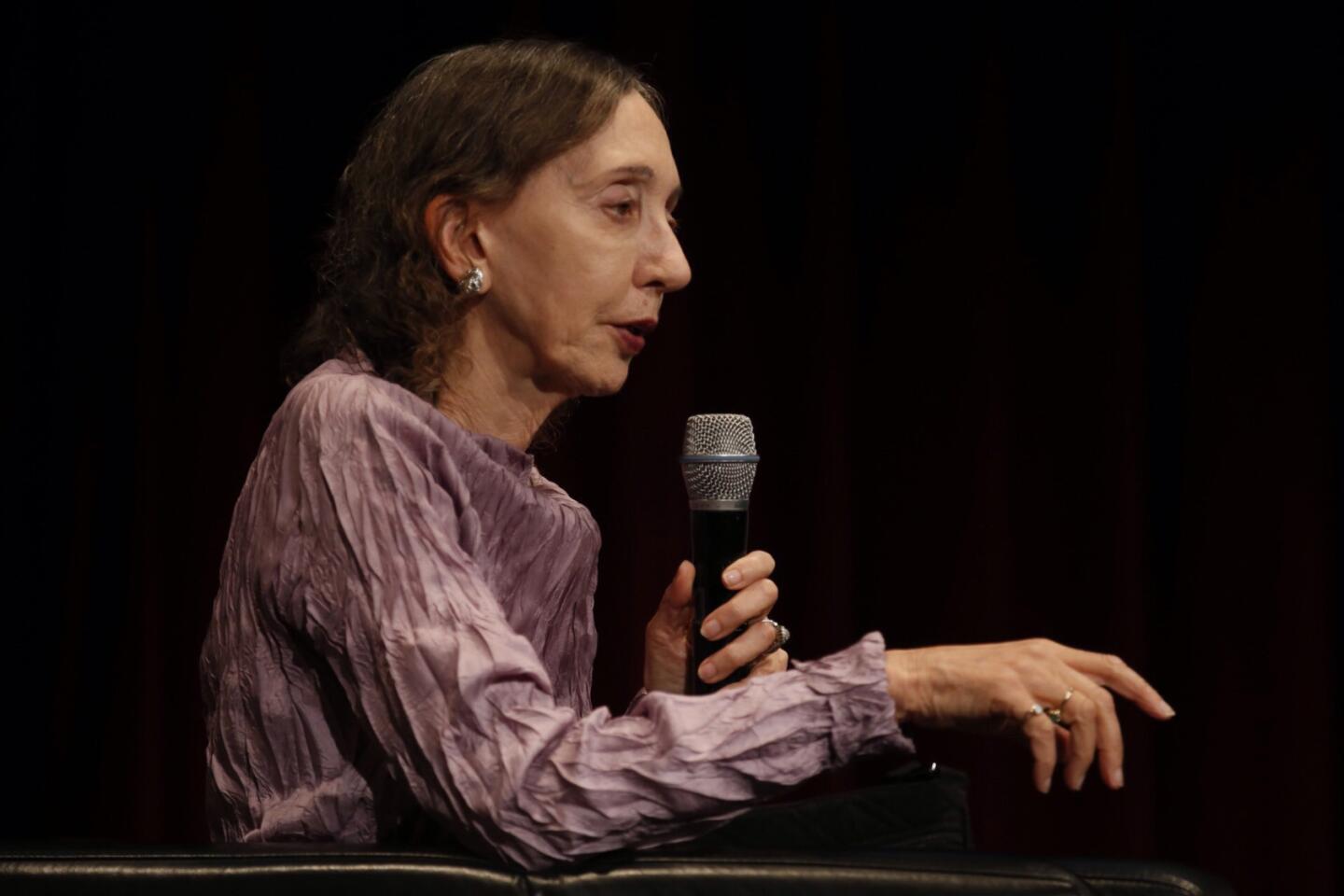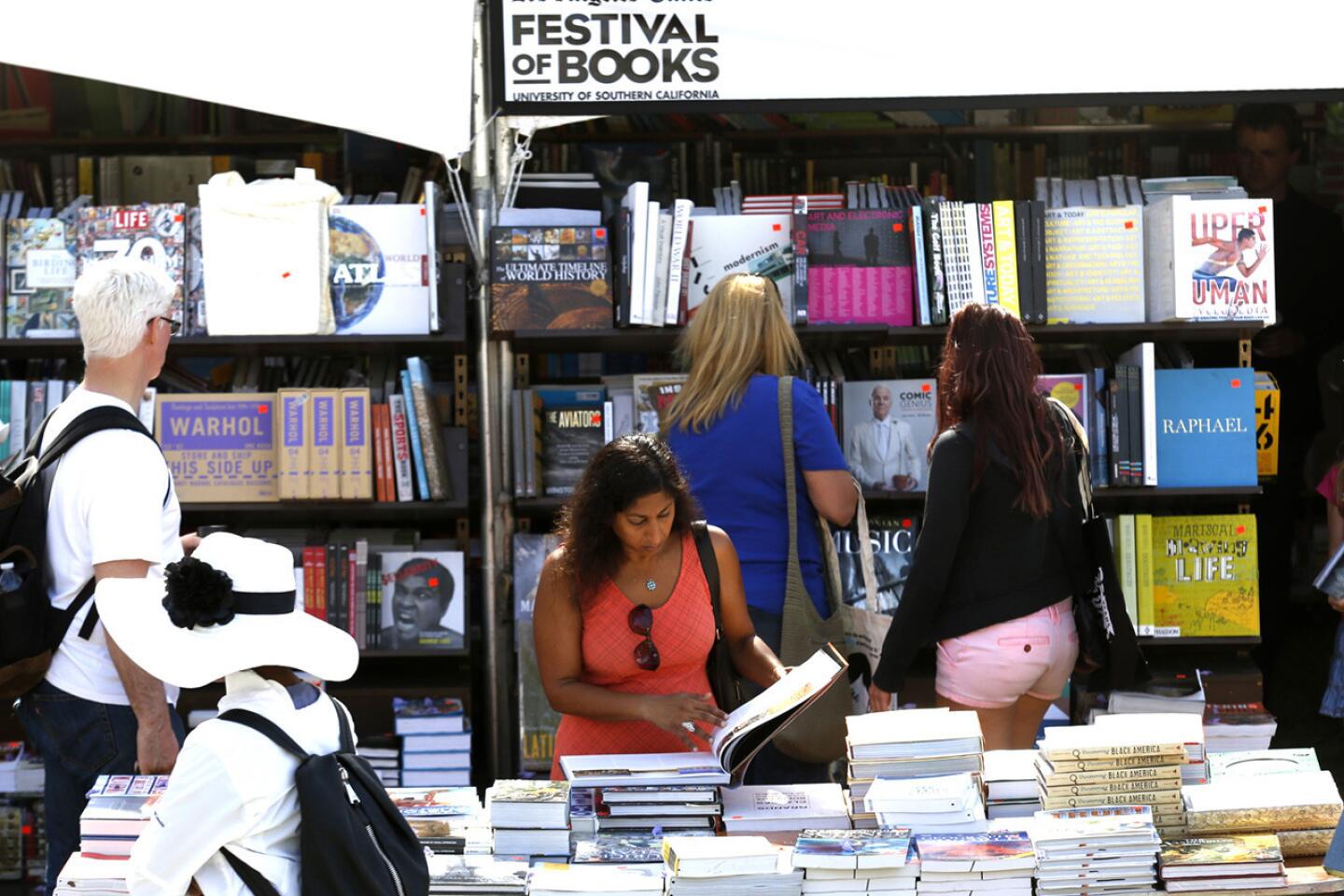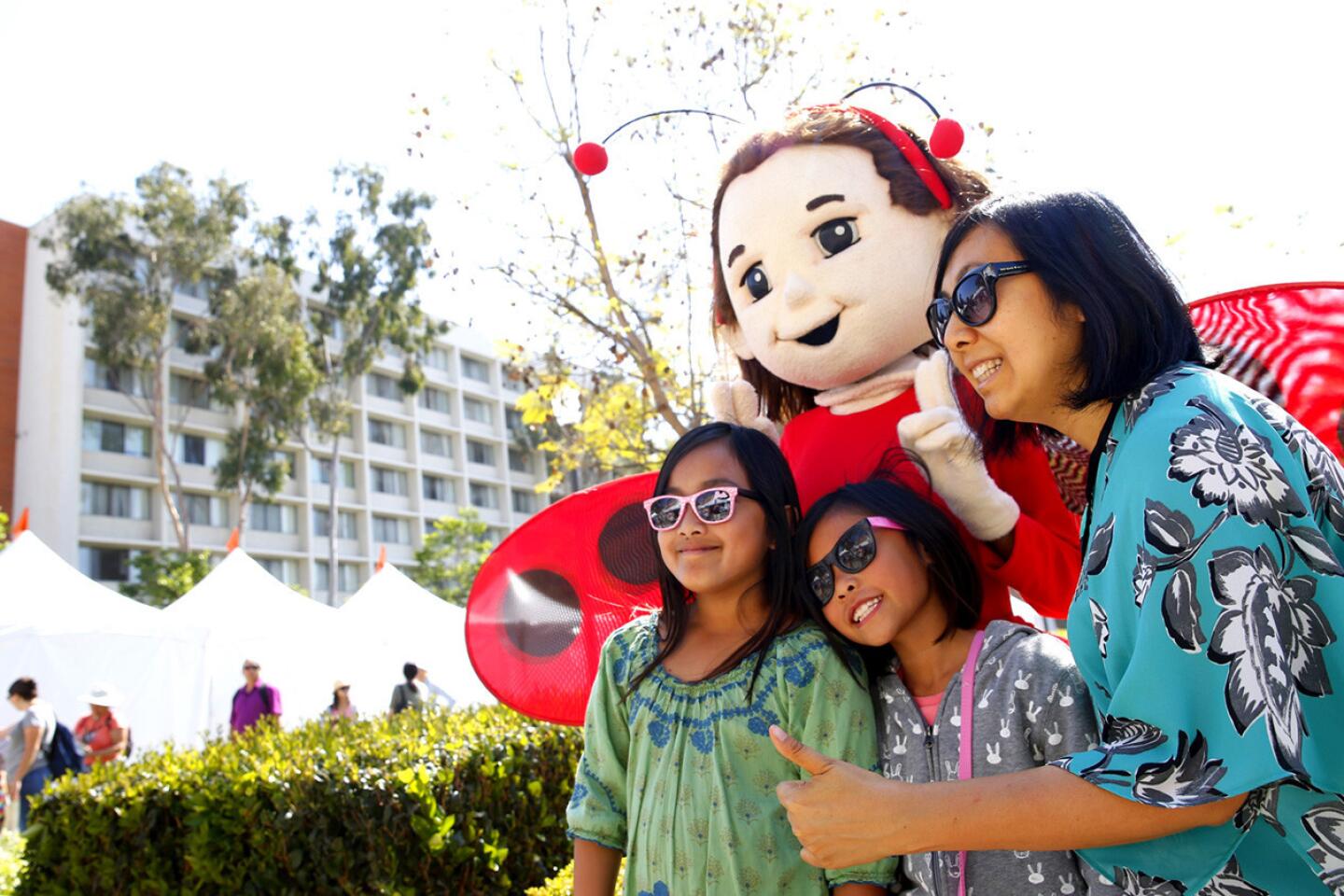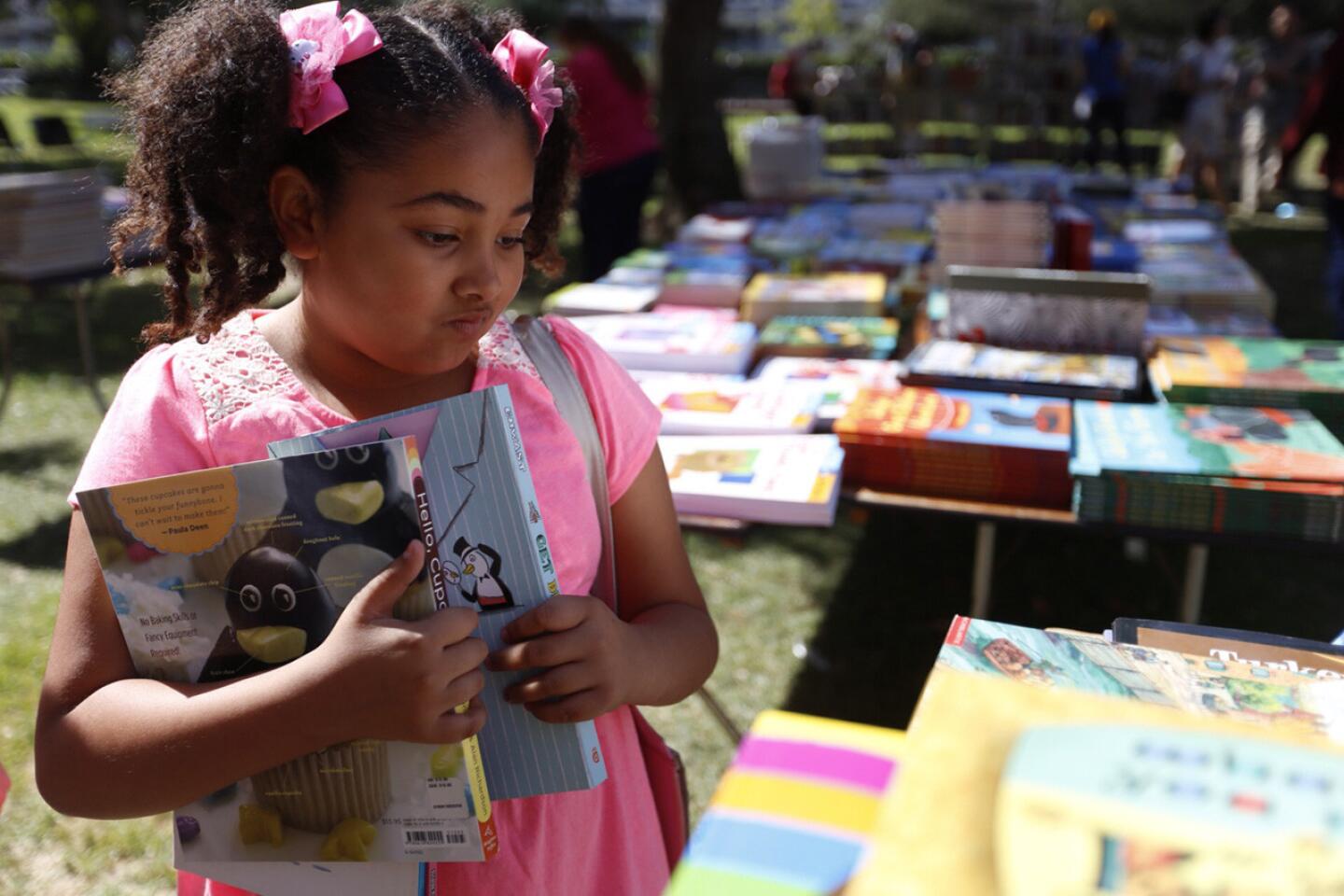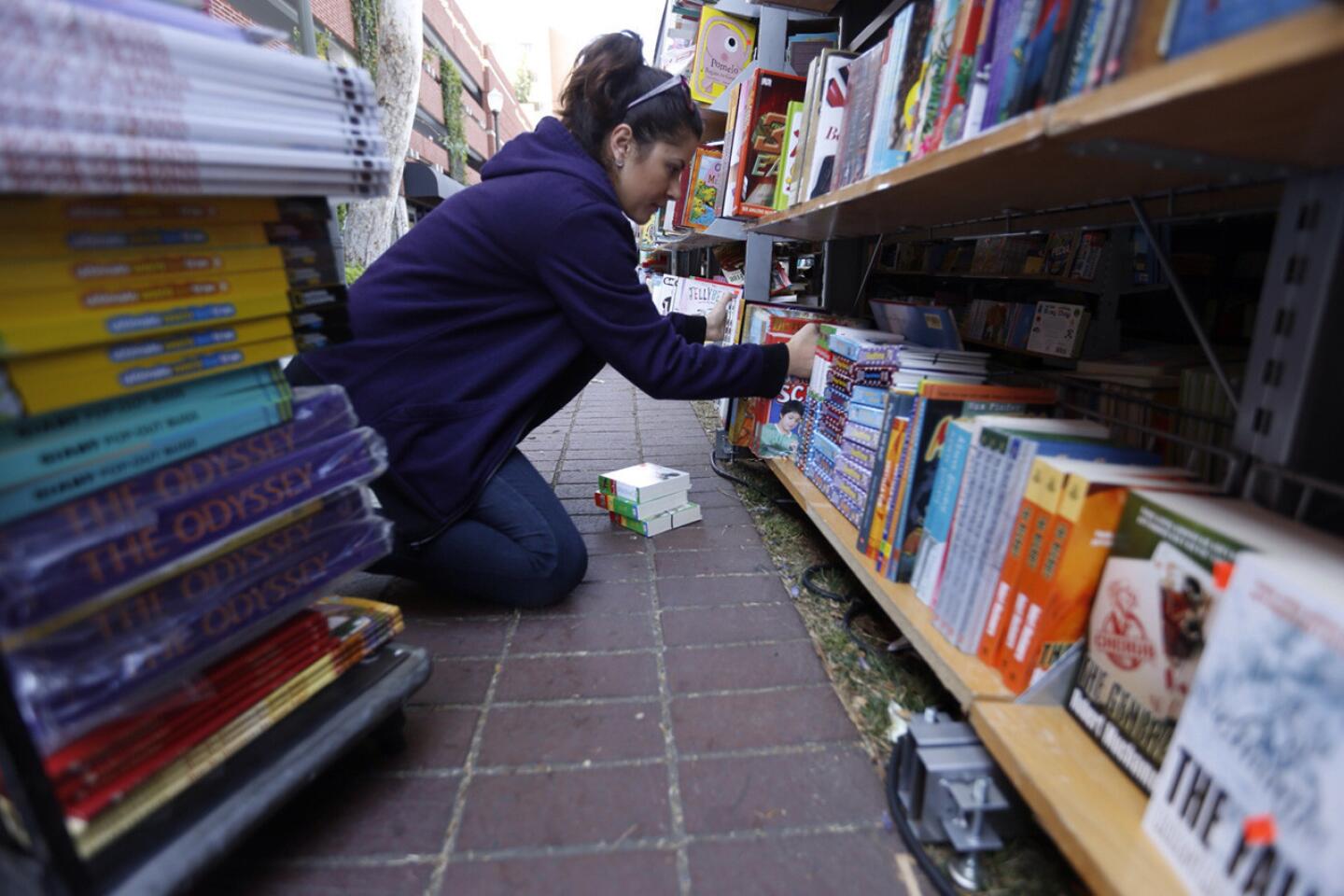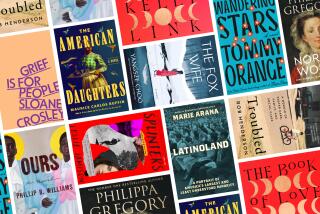Festival of Books: Mystery writers who shift to literary fiction -- and back
Here’s some helpful writing advice from novelist Ivy Pochoda: “The most important thing is to write a book you want to read. It’s odd how many people write books they think other people would like to read.”
On Sunday morning, Pochoda (“Visitation Street”) joined Naomi Hirahara (“Grave on Grand Avenue”) and T. Jefferson Parker (“Full Measure”) for a panel moderated by Miles Corwin (“Midnight Alley”) to talk about writing and publishing crime fiction.
The three said they chose the genre because it proved the best vessel for their stories; and, in Parker’s case, abandoned it when it no longer fit.
FULL COVERAGE: FESTIVAL OF BOOKS
“It didn’t start out as a mystery,” Hirahara said of her first novel, “Summer of the Big Bachi.”
She expressed her primary interest in exploration of place: “Being a native Angeleno, you grow up and visit a lot of communities -- like Boyle Heights and Sawtelle -- that aren’t portrayed in Hollywood movies. I like focusing on characters who can bring a sense of place to new readers.”
Pochoda, whose “Visitation Street” proved a gentle switch in genre from her debut literary novel “The Art of Disappearing,” expressed a similar fascination with place, in particular her old neighborhood of Red Hook, Brooklyn -- its docks and housing projects, its isolation and segregation.
Her path to mystery was almost accidental.
“When I started to write about Red Hook, I thought a disaster would be a way to bring these halves of a neighborhood together,” she said. “A disappearance lent itself to exploring this community, and the community helped to explain the disappearance.”
After more than 20 mysteries published in a now 30-year career, Parker made the opposite switch, taking his first foray into literary fiction with 2014’s “Full Measure,” which he said couldn’t work as a mystery.
“It’s not that kind of novel,” he said he realized after interviewing U.S. Marines for his book in his current home of Fallbrook, Calif. “Rather than try to bend or fit that story into the form of a mystery or thriller, I found it more true to the story, and more exciting and challenging to write outside the genre. It was like throwing open a window.”
#LITIDOL: AUTHORS DISCUSS THEIR LITERARY IDOLS
The authors also discussed their thorny paths to publication.
Hirahara said her debut book took 15 years to get published; Pochoda’s was rejected 38 times. (“The 39th publisher loved it,” she said. “All you need is one. It’s like all those other rejections didn’t matter.”)
“Nobody knows anything,” said Parker, on the confusion around the sale of his first book. “If you’re a writer, good luck, get used to it. Believe in yourself, I guess.”
MORE FROM THE FESTIVAL OF BOOKS:
How authors tackle truthfulness in memoirs
What’s the secret to making a crime novel work?
Is it rude to ask women humor writers how they differ?
Follow the books section on Twitter @latimesbooks and Facebook
More to Read
Sign up for our Book Club newsletter
Get the latest news, events and more from the Los Angeles Times Book Club, and help us get L.A. reading and talking.
You may occasionally receive promotional content from the Los Angeles Times.

